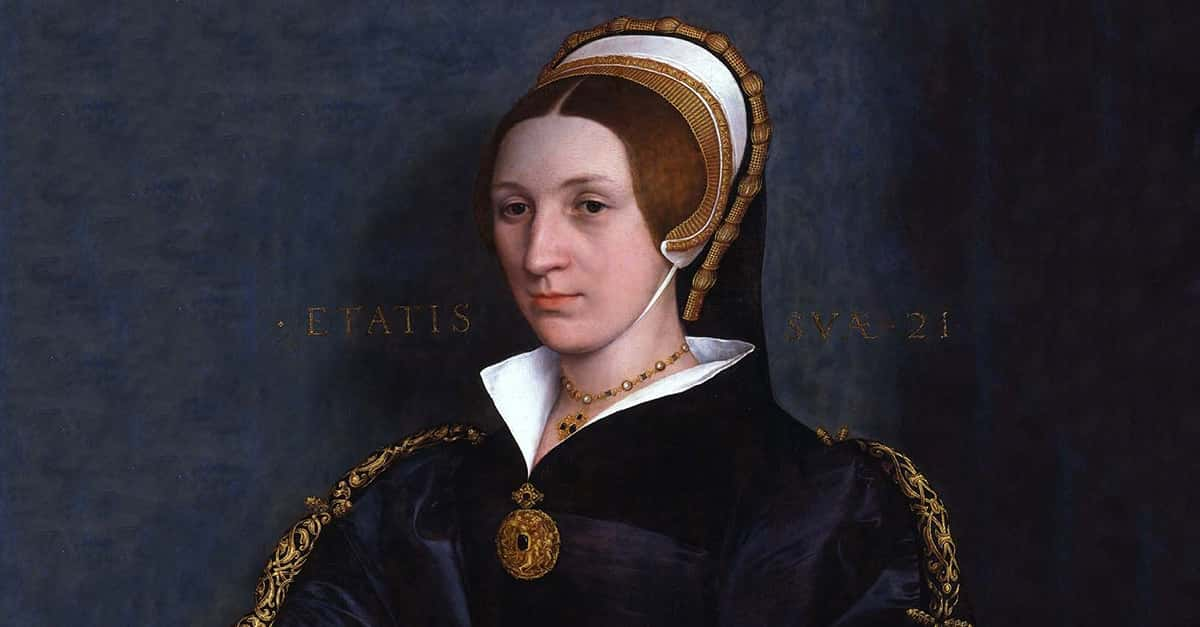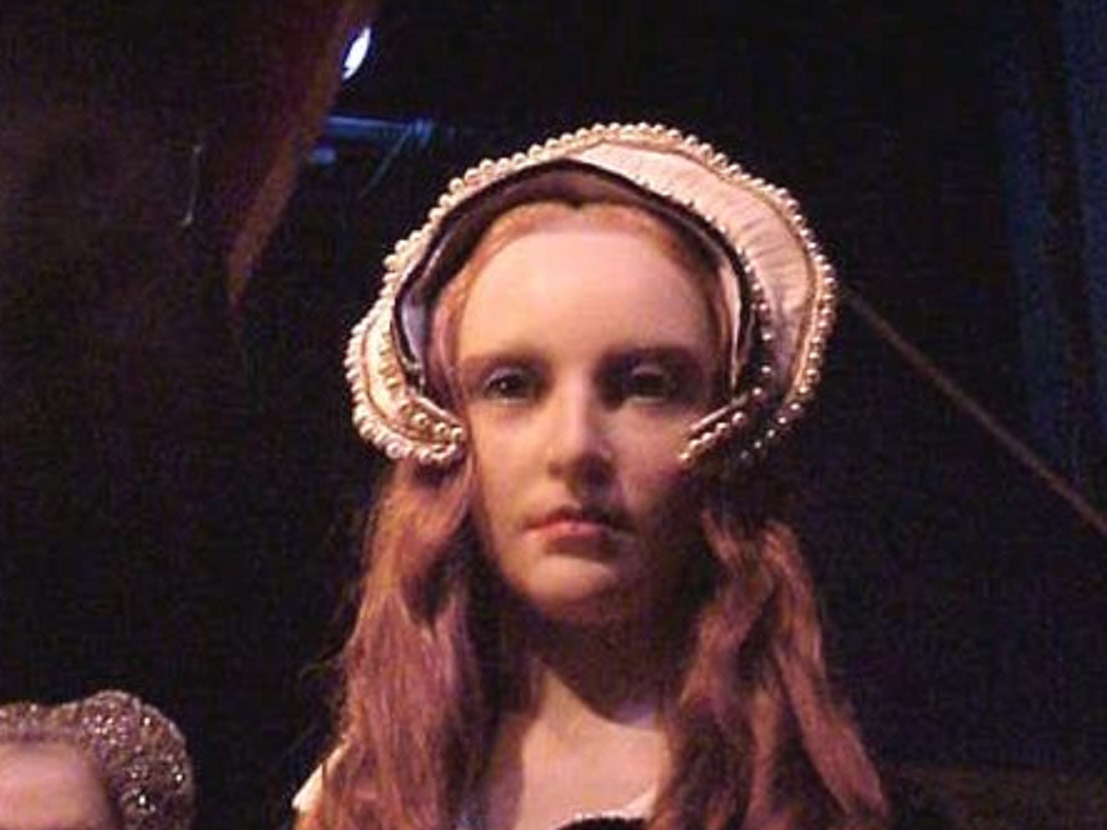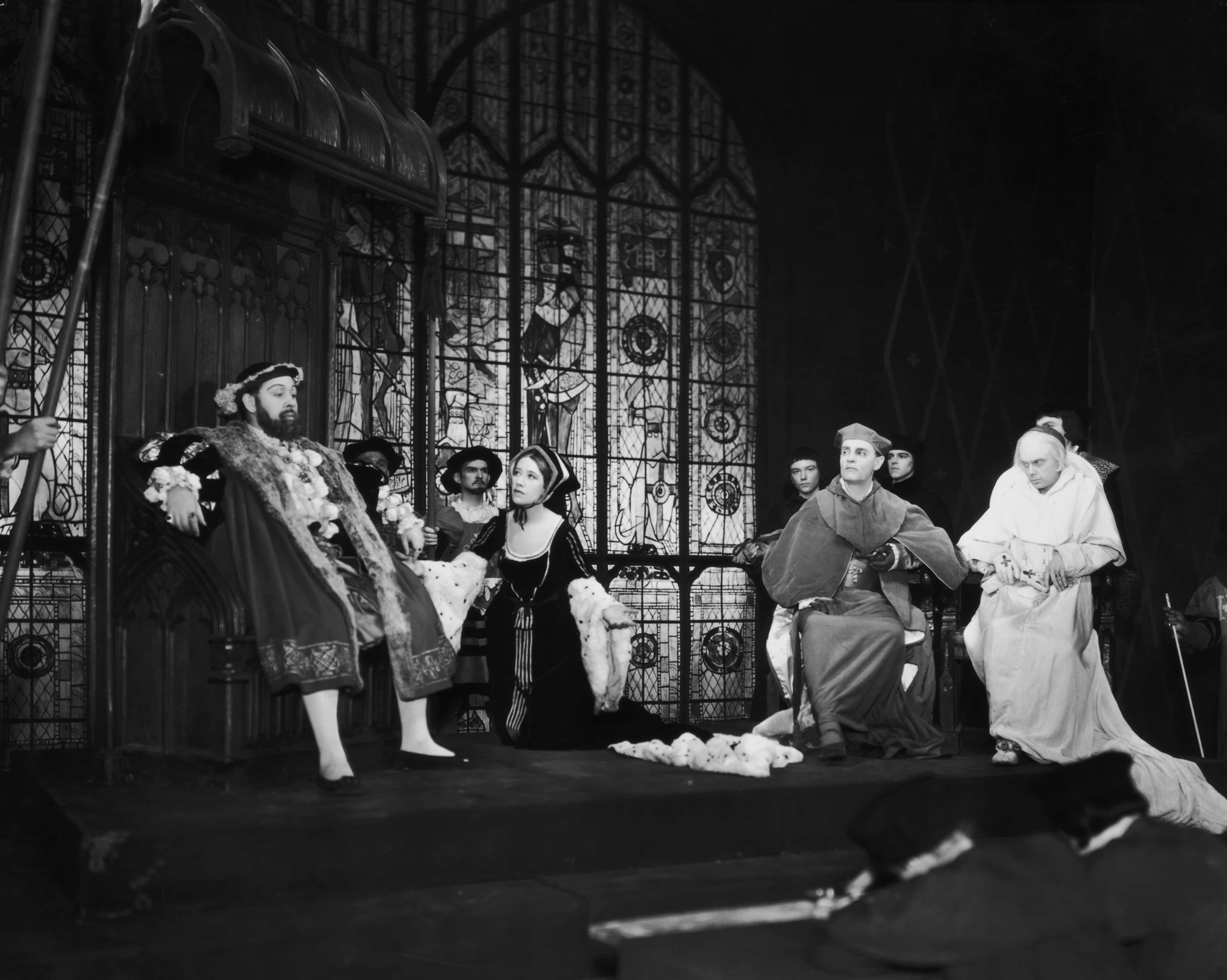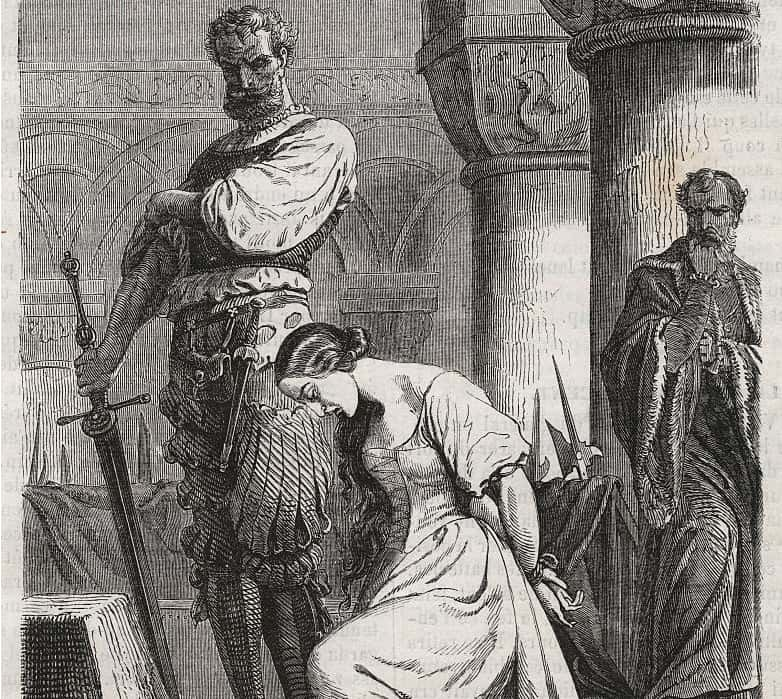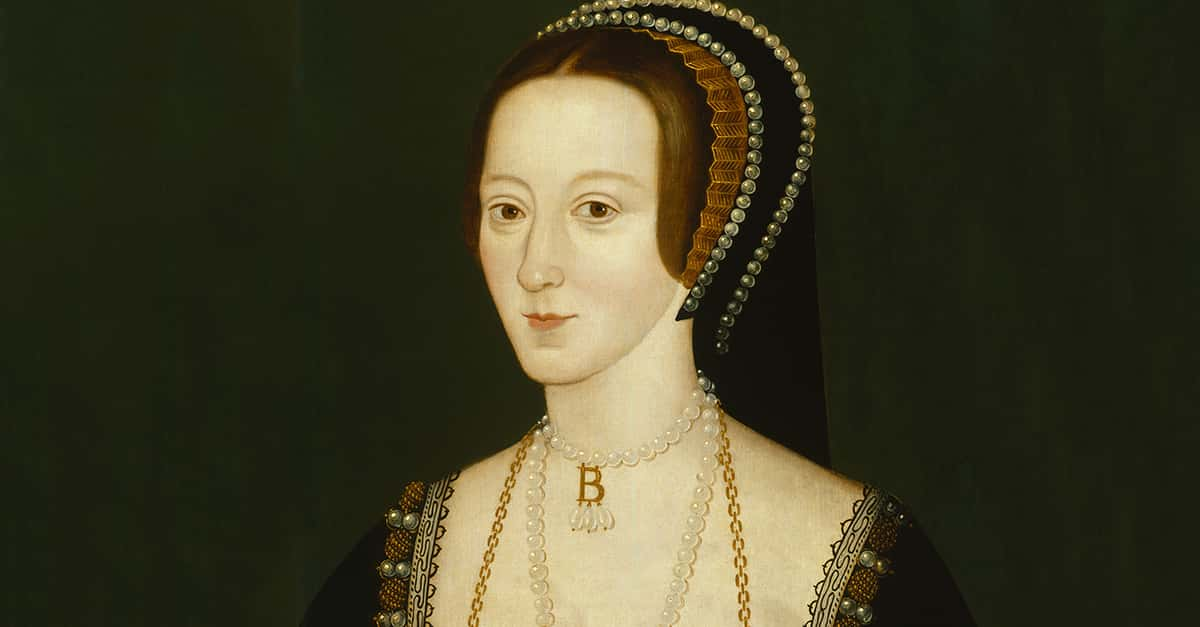Catherine Howard reigned for barely a year-and-a-half. She seemingly left behind no children or legacies—except for one huge tragedy. She was the fifth wife of King Henry VIII, and only the second English queen to ever be executed for adultery and treason. The first, Anne Boleyn, has gone down in infamy. But Catherine's history is even darker.
1. Keep It in the Family
King Henry VIII definitely had a type. Not only were all of his six wives distantly related, Catherine Howard was actually very close kin to his other doomed queen, the infamous Anne Boleyn. The women were first cousins, sharing blood as well as a bloody ends. Yet in many ways, Anne Boleyn's infamous fate was nothing compared to Catherine's downfall.
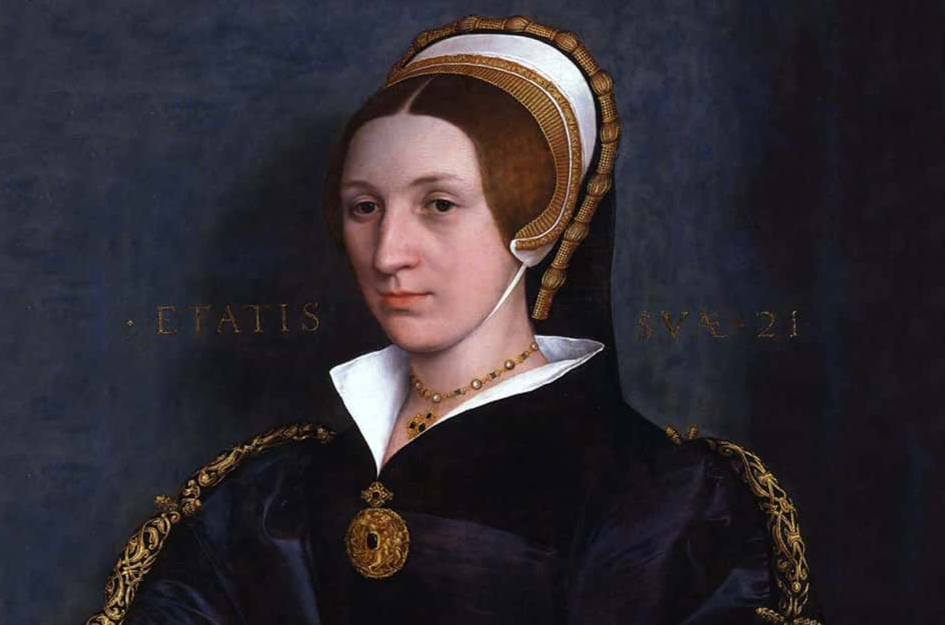 Hans Holbein the Younger, Wikimedia Commons
Hans Holbein the Younger, Wikimedia Commons
2. Good-Time Gal
Because Medieval records are notoriously lax, we don't always have reliable information about the personalities of Henry VIII's queens. Catherine Howard, however, is a total exception. Practically everyone agreed that she was vivacious and lively, and no one ever described her as devout or bookish. In other words, this girl could flirt.
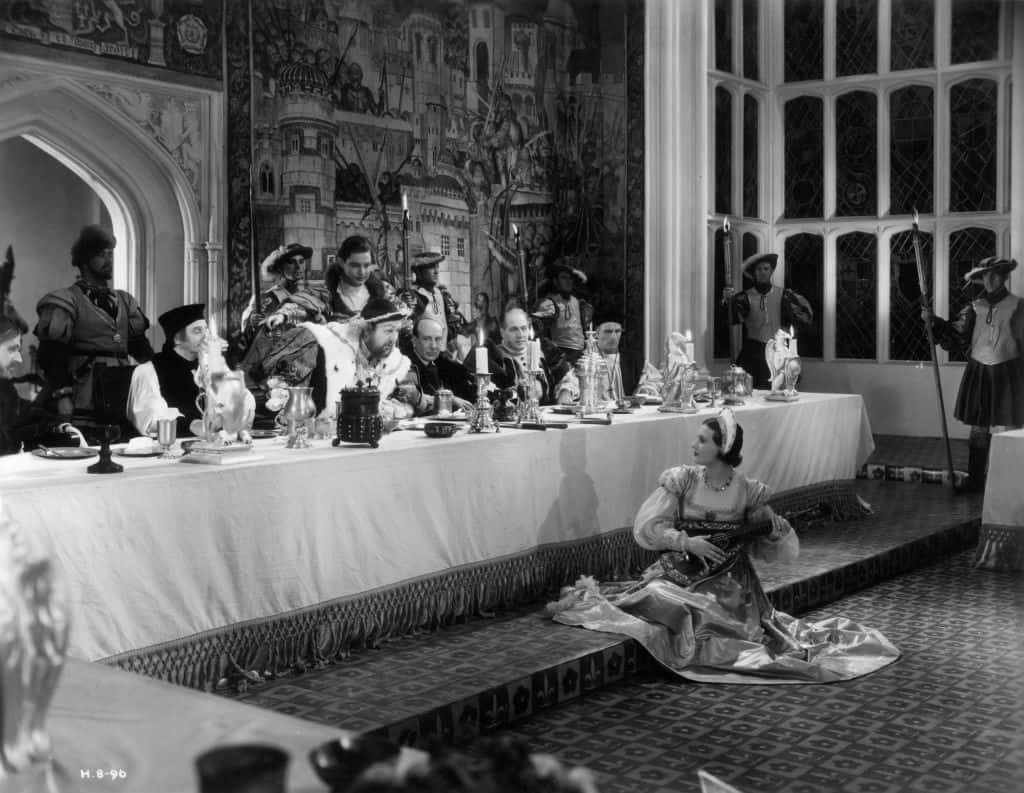 General Photographic Agency, Getty Images
General Photographic Agency, Getty Images
3. Moving on up
Catherine ended up meeting and snagging King Henry in an utterly scandalous way. Catherine actually served as the lady-in-waiting to Henry's fourth queen, Anne of Cleves. The king didn't really take to his new German bride, but he definitely liked Anne’s pretty and young maid, Catherine Howard. So he set about getting what he wanted.
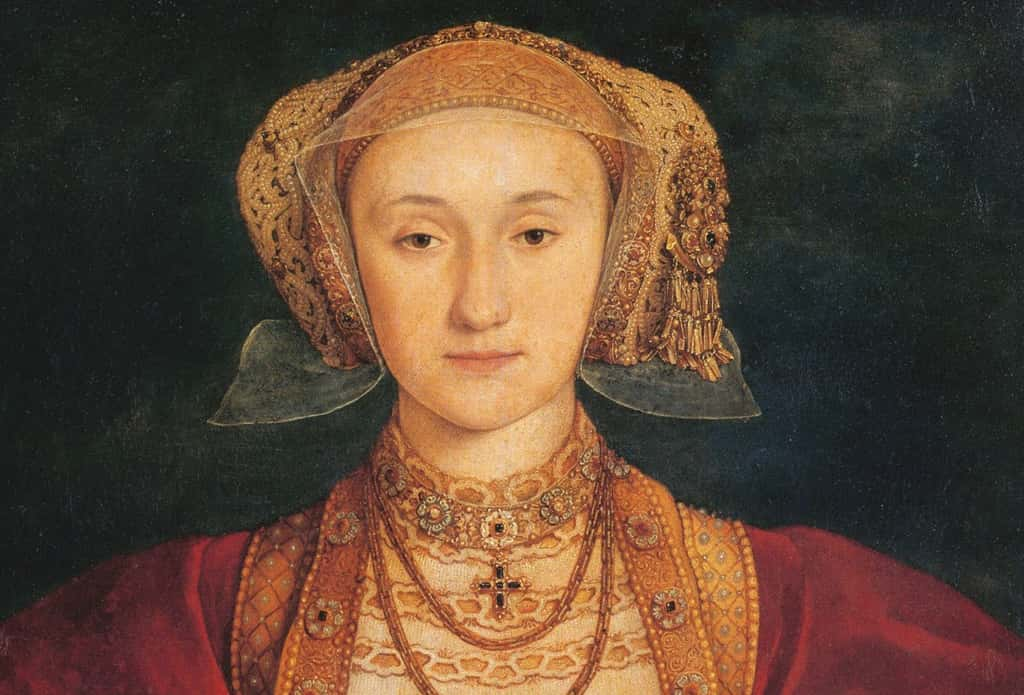 Hans Holbein the Younger, Wikimedia Commons
Hans Holbein the Younger, Wikimedia Commons
4. Pay Day
Henry claimed he had never known "the like to any woman" when it came to Catherine, and within months of starting her career at court, she was reaping the benefits of being a king’s mistress. Sure, Henry was middle-aged and she was only 17 years old, but she and her family received fabulous gifts in return. Still, historians say there's a darker side to story.  Showtime Networks, The Tudors (2007–2010)
Showtime Networks, The Tudors (2007–2010)
5. Bring Honor to Your Family
According to certain experts, Catherine's ambitious uncle the Duke of Norfolk may have pushed her into Henry's arms, manipulating both his niece and Henry’s feelings in order to gain more influence over the realm. Given what we know now, maybe all this familial pressure eventually got to be too much for Catherine.
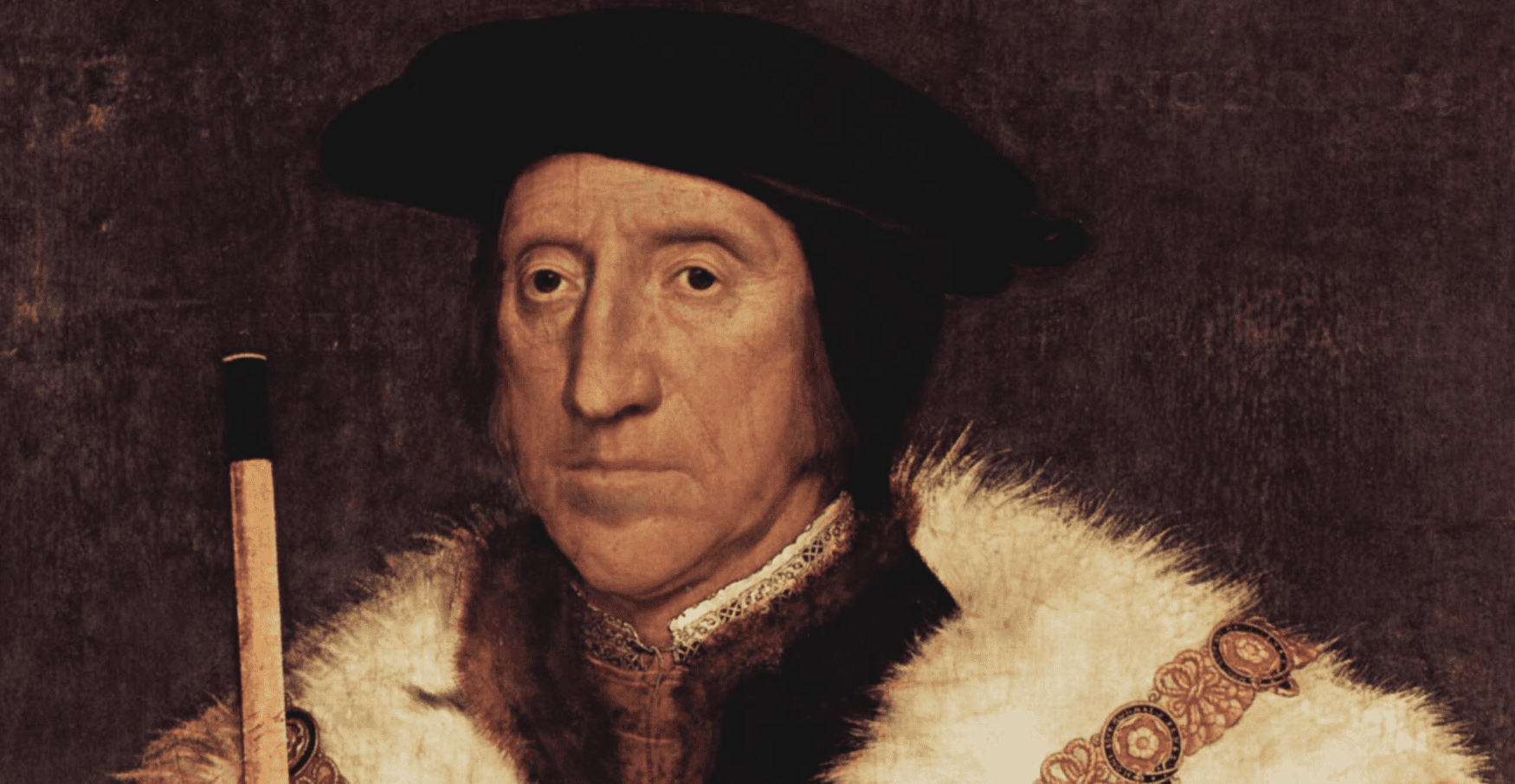 Hans Holbein the Younger, Wikimedia Commons
Hans Holbein the Younger, Wikimedia Commons
6. Just Hot Enough
Auburn-haired, petite, and fair, Catherine met the beauty standards of early-modern Europe, and people said she had a "gentle, earnest face". Only the French ambassador Charles de Marillac offered a mildly dissenting view by reporting her as a “moderate beauty,” though he also called her "delightful". Maybe he just didn’t want Catherine to have a big head.
 Showtime Networks, The Tudors (2007–2010)
Showtime Networks, The Tudors (2007–2010)
7. New Hire
Henry annulled his marriage to Anne of Cleves after just six months of marriage on July 9, 1540. Now a free agent, he wasted zero time making it official with his sidepiece, our own Catherine Howard. The pair married on July 28, 1540, a scandalous 19 days after his annulment from Anne went through. And if that wasn’t enough drama…
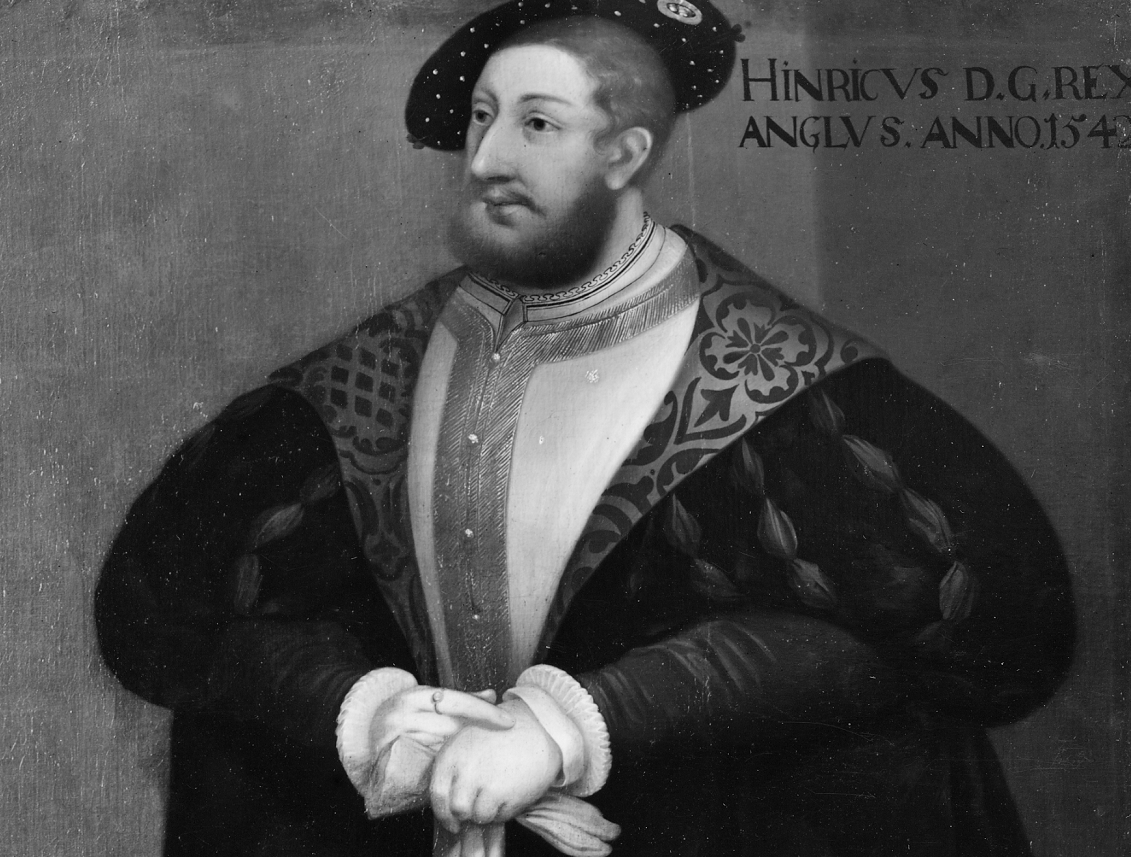 Nationalmuseum, Wikimedia Commons
Nationalmuseum, Wikimedia Commons
8. One Wedding and One Funeral
Catherine and Henry were married on the same day of Thomas Cromwell’s execution for high treason. Cromwell had been the mastermind behind Henry’s marriage to Anne of Cleves; the marriage’s failure put Cromwell out of favor and left him vulnerable to his enemies and Henry’s wrath. Ironically, it also paved the way for Catherine to come to court and meet Henry.
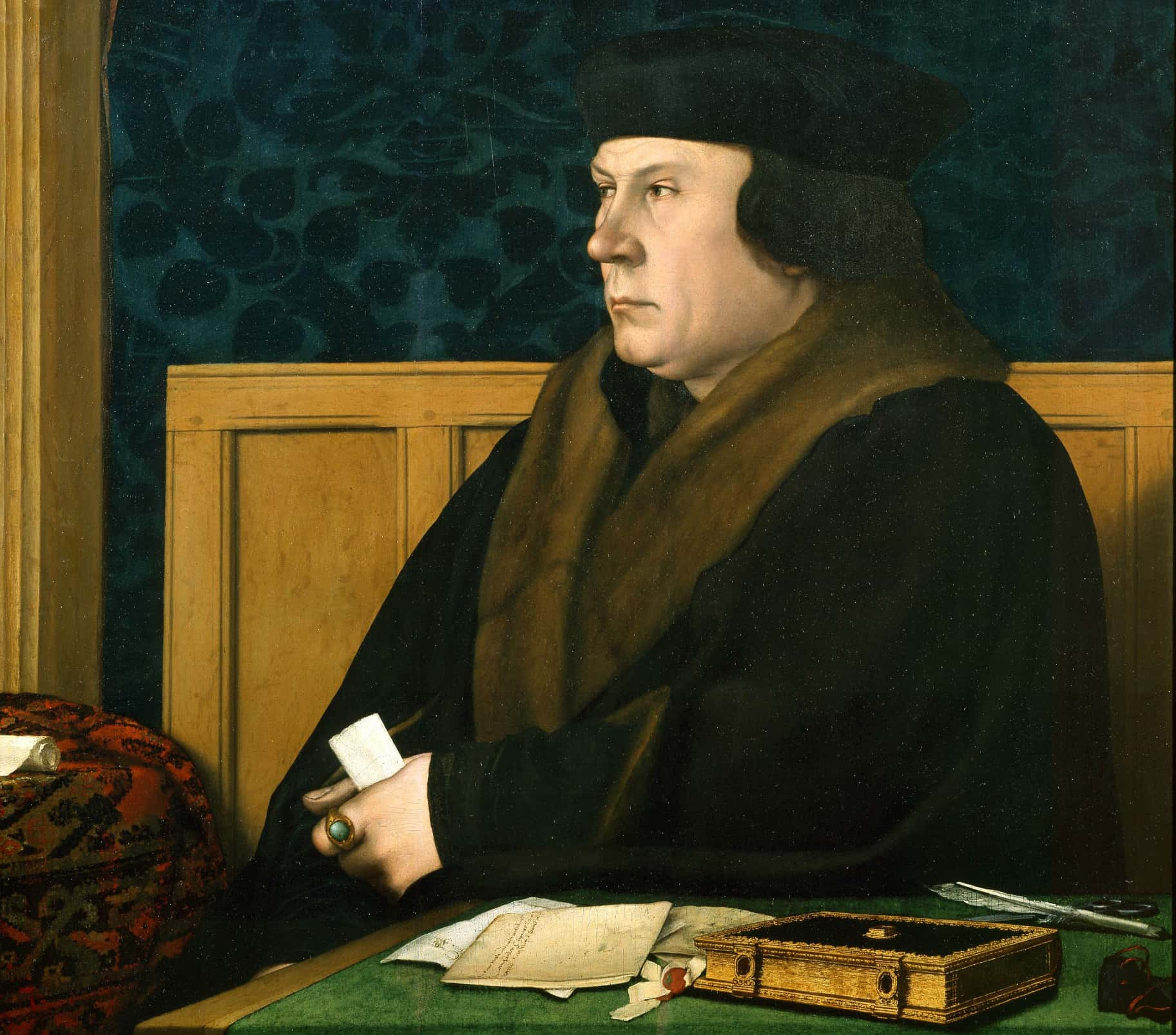 Hans Holbein the Younger, Wikimedia Commons
Hans Holbein the Younger, Wikimedia Commons
9. Bend the Knee, Collect the Crown
Catherine’s official queenly motto was “Non autre volonte que la sienna,” which means “No other will but his". It was a display of queenly obedience as sweet as it was strategic...but in hindsight, it foretold her brutal, untimely end.
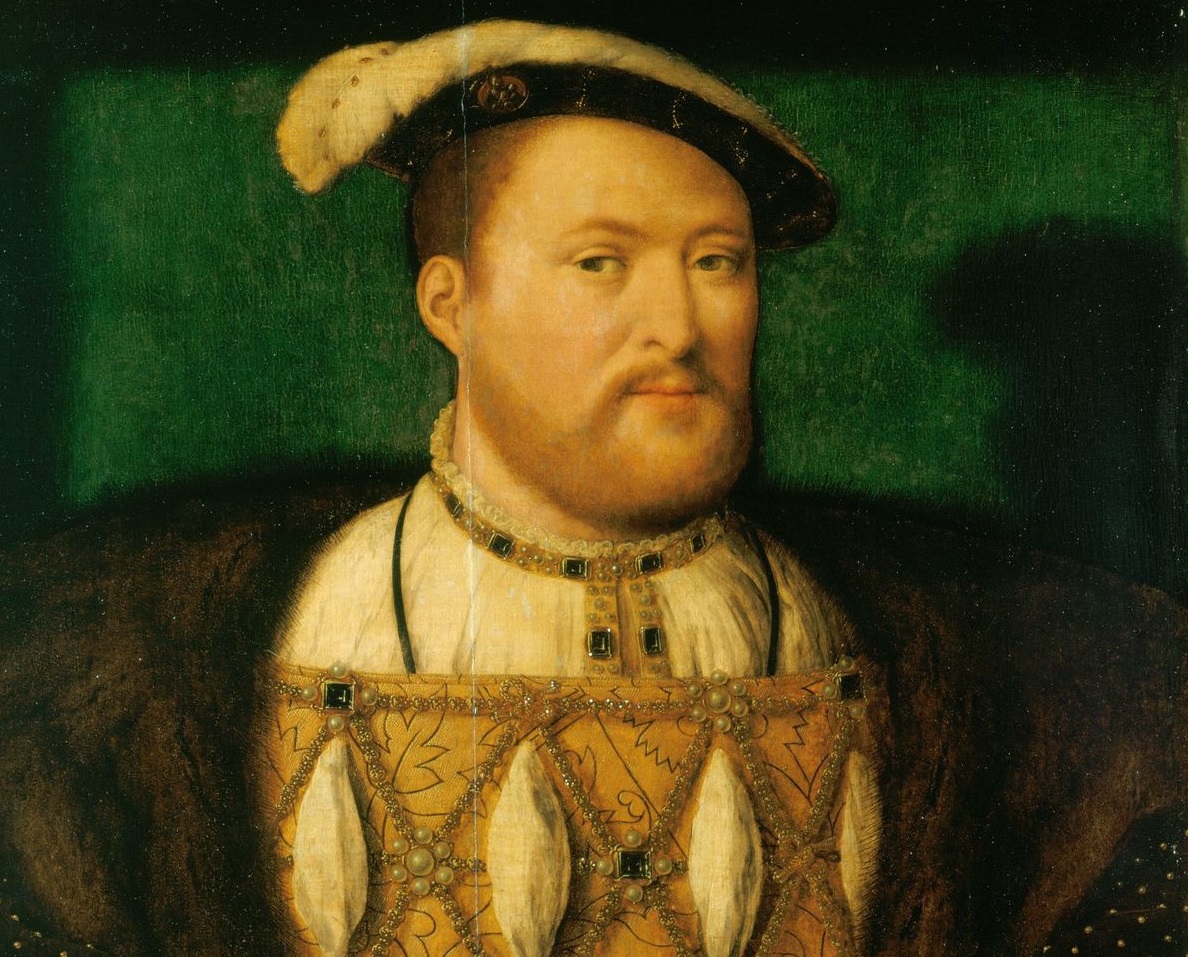 Joos van Cleve, Wikimedia Commons
Joos van Cleve, Wikimedia Commons

History's most fascinating stories and darkest secrets, delivered to your inbox daily.
10. Anything for My Princess
Henry and Catherine's marriage started out well enough, and it was certainly fit for a queen. Though no coronation was on the horizon, the royal couple went on a lavish honeymoon through England. King Henry, feeling extra "young at heart," also went on huge shopping sprees for his sweetums, "indulg[ing] her every whim". But their first storm was just around the corner.
 Hans Holbein the Younger, Wikimedia Commons
Hans Holbein the Younger, Wikimedia Commons
11. A Royal Tantrum
The winter after their wedding, King Henry showed his violent side. By this time, his legs were riddled with ulcers, and the agonizing pain made him alternately depressed and furious. He even rose to paranoia, accusing his aides of being "lying time-servers". He was not an easy husband to be around, and maybe this explains Catherine's behavior.
12. Miss Mystery
Surprisingly for such a highborn lady, the details about Catherine’s early life are mostly a mystery. We don’t know what year she was born—although people generally believe it was around 1523. We don’t even know what the birth order was in her huge family: The future queen might have been about her father’s fifth child but, impressively, her mother’s tenth.
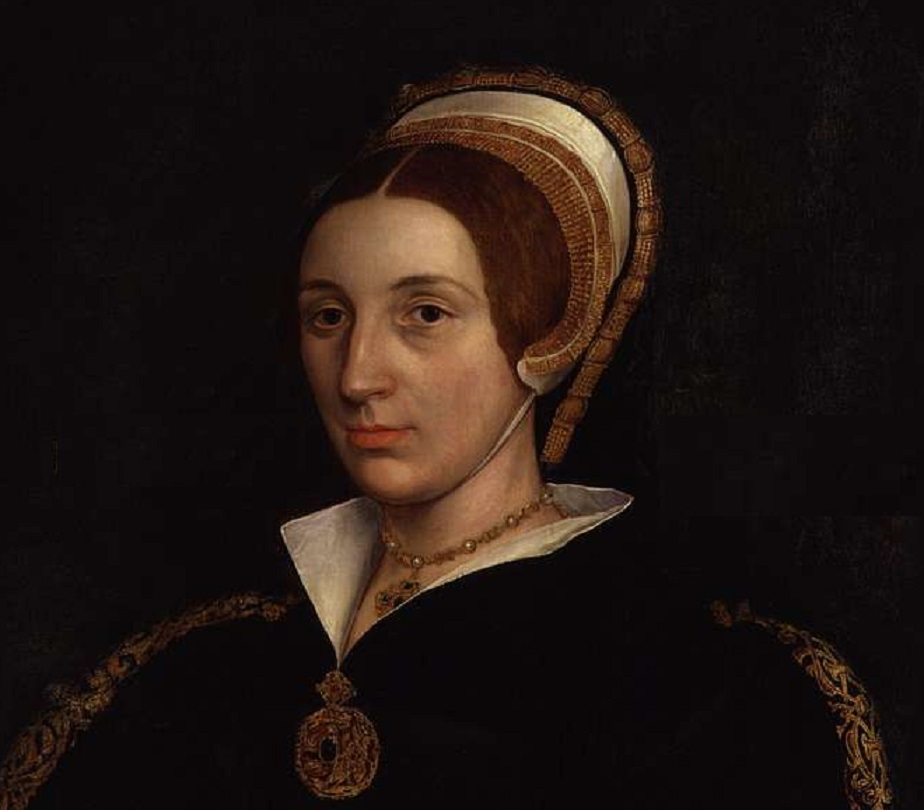 National Portrait Gallery London, Picryl
National Portrait Gallery London, Picryl
13. Cheaper by the Dozen Is Depressing in Real Life
Despite her aristocratic birth, Catherine spent most of her childhood in poverty. While her father Edmund Howard was the son of a duke, he was a younger son and just one of 21 children (Thanks, Medieval birth control). This also meant that daddy Howard would inherit almost nothing, leading Catherine to dream of snagging wealth and riches another way entirely.
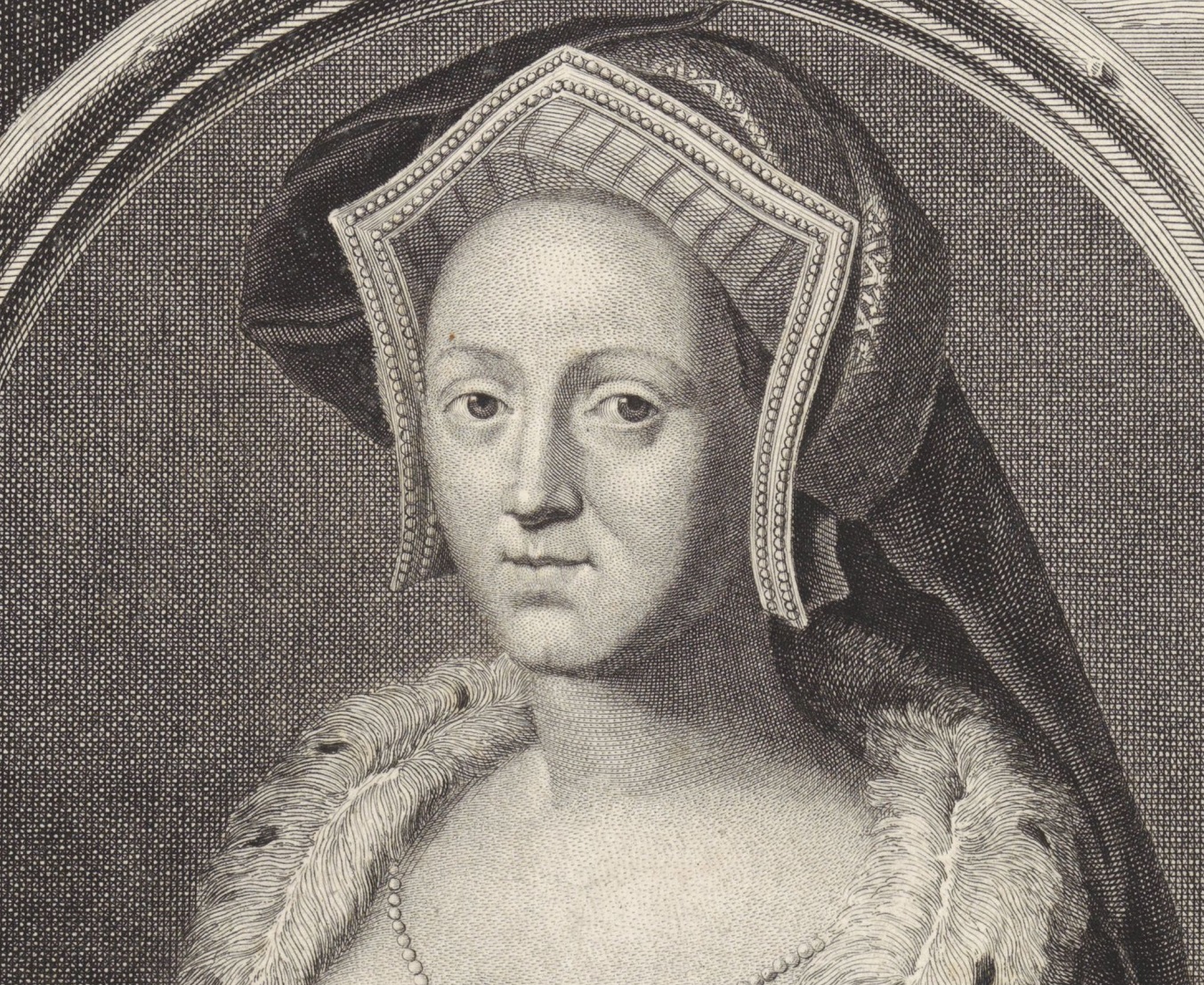 Cornelis Vermeulen, Wikimedia Commons
Cornelis Vermeulen, Wikimedia Commons
14. Dance With Me
To give you an idea of just how "lively" Catherine Howard really was, she adored dancing and did it whenever she could, but even it couldn't hold her interest for long. Apparently she would often get distracted in the middle of her dancing lessons and start making jokes. Later on, some would say that her wandering mind gave her a wandering eye...
 Showtime Networks, The Tudors (2007–2010)
Showtime Networks, The Tudors (2007–2010)
15. Daddy Small Bucks
Catherine's childhood was riddled with more misfortune than any one girl could handle. Her father was absent much of her life, and her mother Joyce passed in 1528 when Catherine was only five years old. This left the girl young, poor, and vulnerable in a world that ate pretty little girls for breakfast. We'll see how that worked out.
16. Away From Home
With her father abroad and her mother gone, Catherine went to live with her step-grandmother, Agnes Howard. But it was hardly a disciplined upbringing: Agnes was an old woman, often away at court in London, and generally disinterested in her wards. This lack of supervision left Catherine disturbingly vulnerable.
 Showtime Networks, The Tudors (2007–2010)
Showtime Networks, The Tudors (2007–2010)
17. Girls' Night
Catherine picked up some unsettling habits while she was at her step-grandma's. Specifically, she became friends with a set of older girls who snuck men into their bedrooms at night. In return, these stand-up guys would ply the girls with gifts of wine, food, and other baubles. Sooner or later, it was bound to get Catherine into trouble...
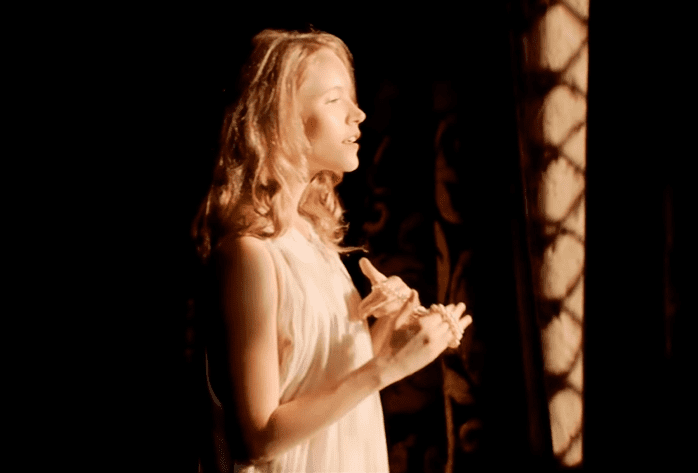 Showtime Networks, The Tudors (2007–2010)
Showtime Networks, The Tudors (2007–2010)
18. Vamp or Victim?
During Catherine's infamous fall from grace (more on that later), Henry VIII started digging into her past—and found one detail among many that made his blood run cold. When she was just 13 years old, Catherine began a "romance" with her much older music teacher, Henry Mannox. The real story, however, is much grosser than that.
 Showtime Networks, The Tudors (2007–2010)
Showtime Networks, The Tudors (2007–2010)
19. May-December Romance
Given that Catherine was barely into her teen years at the time and Mannox was a 36-year-old man, most modern historians believe that he took advantage of the young girl. Mannox himself testified at her trial that they had intimate contact, though they never consummated their "relationship". Well, Catherine, had her own words to say about that.
 Hans Holbein the Younger, Wikimedia Commons
Hans Holbein the Younger, Wikimedia Commons
20. Creepy Old Man
Even if other people claimed Catherine was "asking for it" when it came to Mannox, the queen denied this vehemently in her trial. As she told the court, "Being but a young girl, I suffered him at sundry times to handle and touch the secret parts of my body". Translation: That guy was gross and I wish I could forget him. Sadly, this wasn't the only skeleton in Catherine's closet.
 Showtime Networks, The Tudors (2007–2010)
Showtime Networks, The Tudors (2007–2010)
21. The Nose Knows
Judging by one of the most definitive portraits we have of Catherine, she inherited "the Howard nose," which had a distinctive hook on the end.
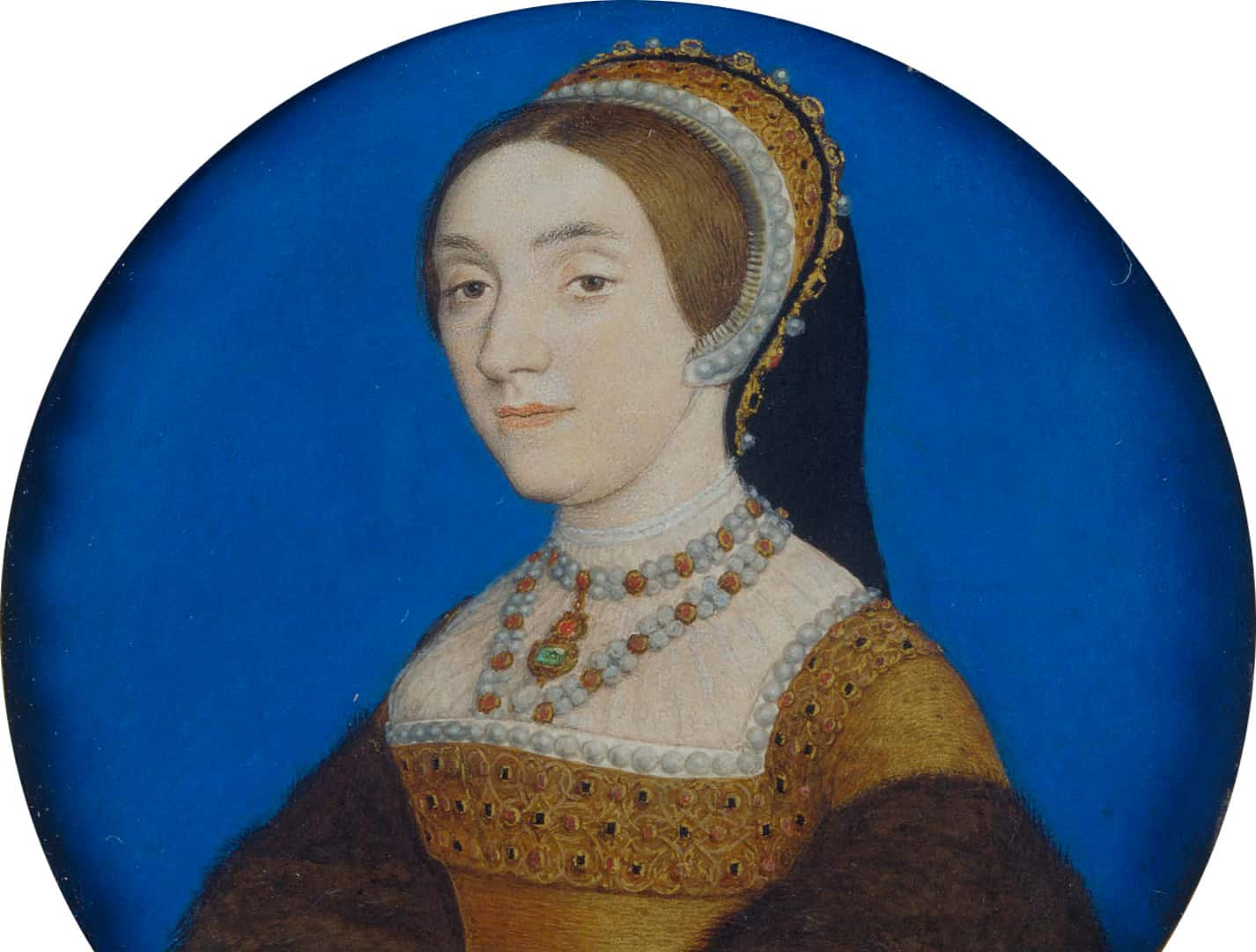 Hans Holbein the Younger, Wikimedia Commons
Hans Holbein the Younger, Wikimedia Commons
22. Not Living to Learn
Catherine was, er not exactly the most educated of Henry VIII’s queens. With her impoverished upbringing, she didn't really have the means to collect as many "accomplishments" as some of Henry's other women. She could read and write—although letter writing would contribute to her downfall—she could dance well, and she could play music.
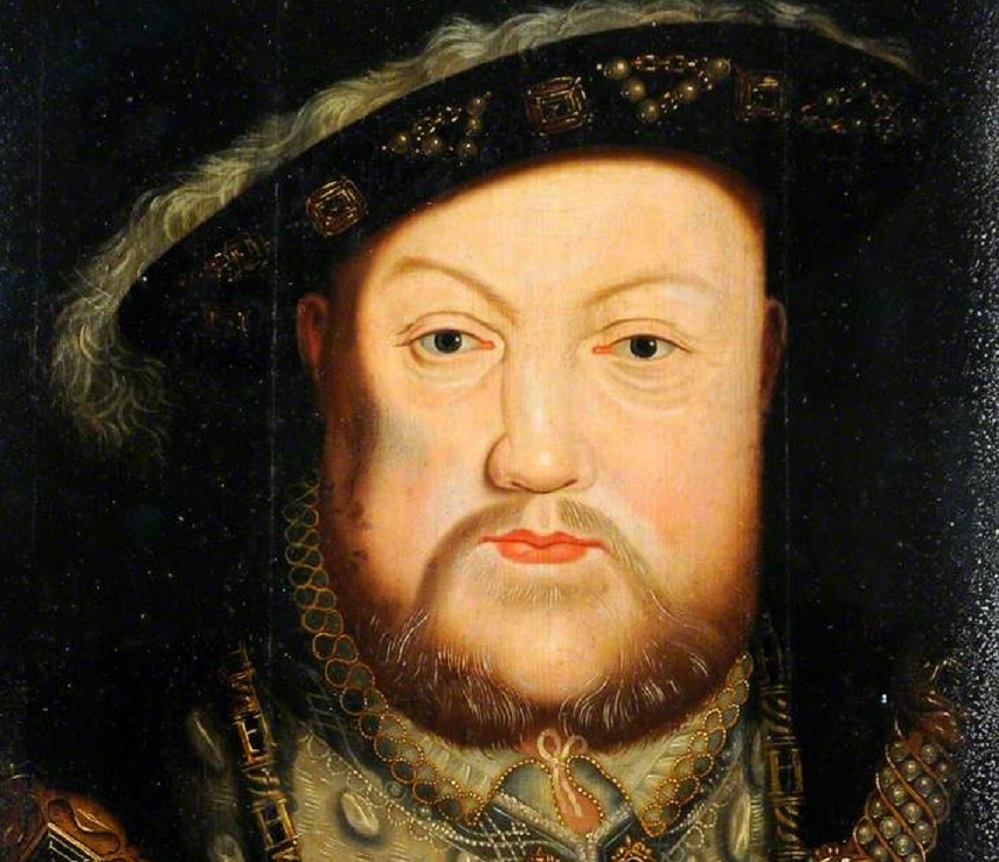 Hans Holbein the Younger, Wikimedia Commons
Hans Holbein the Younger, Wikimedia Commons
23. A New Man in Her Life
Before she was ever queen, a man named Francis Dereham spelled the end for Catherine Howard. After her creepy introduction to love with Henry Mannox, the teenaged Catherine became lovers with Dereham, who was about 10 years older than her and worked on her grandmother's estate. Now this relationship had some very "adult" behaviors...
 Showtime Networks, The Tudors (2007–2010)
Showtime Networks, The Tudors (2007–2010)
24. Marriage 1.0
Unlike Catherine's affair with Mannox, her relationship with Dereham was definitely consummated. Even more seriously, they referred to each other as “husband” and “wife," and were engaged to be engaged. Moreover, many of Catherine’s roommates were aware of her naughty little arrangement. That is, until it came to a disastrous end.
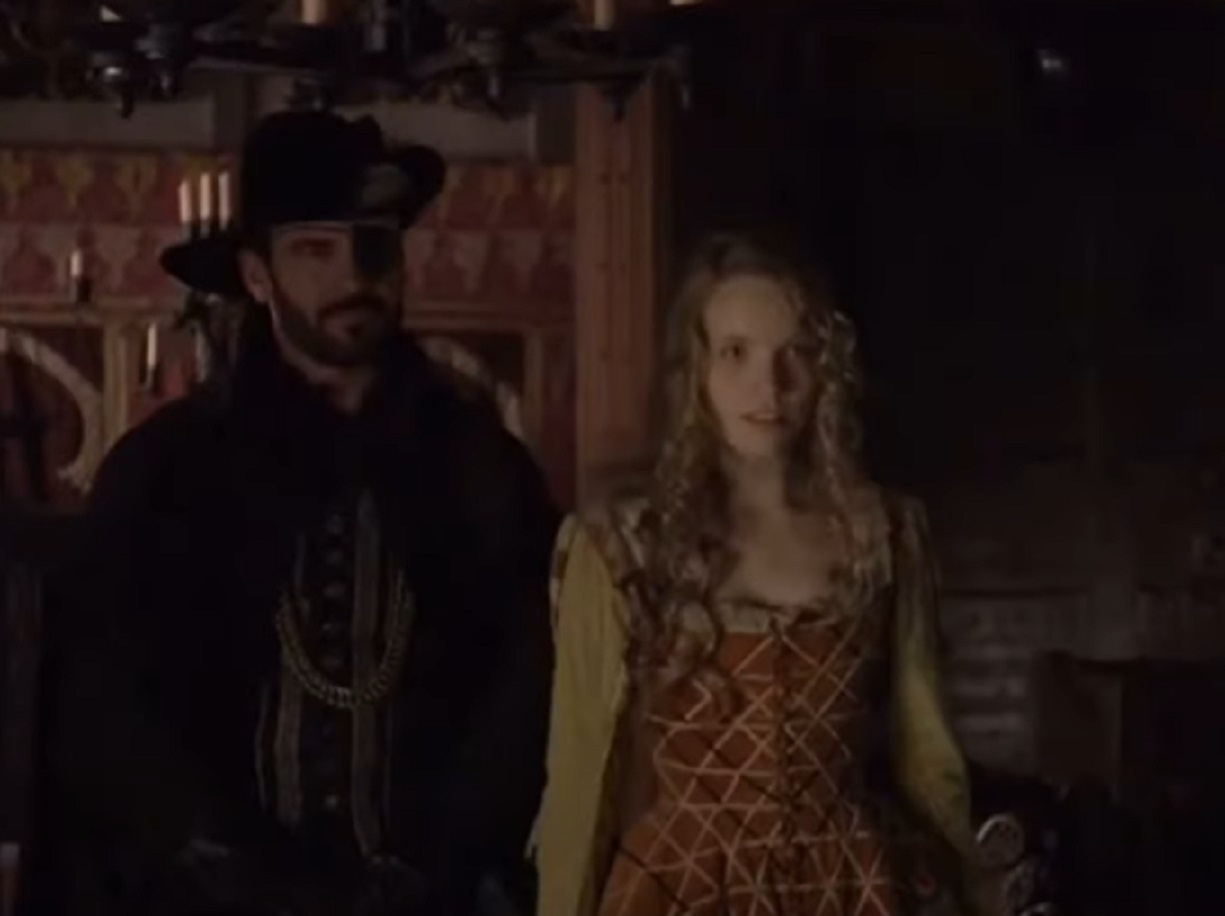 Showtime Networks, The Tudors (2007–2010)
Showtime Networks, The Tudors (2007–2010)
25. Star-Crossed Lovers
Catherine's step-grandmother discovered her ward's affair with Dereham in 1539. The old lady did not take the misconduct kindly: She banned Dereham from the premises, and he eventually went away to Ireland. Before he did, though, some speculate that the couple exchange vows. True or not, this had catastrophic implications.
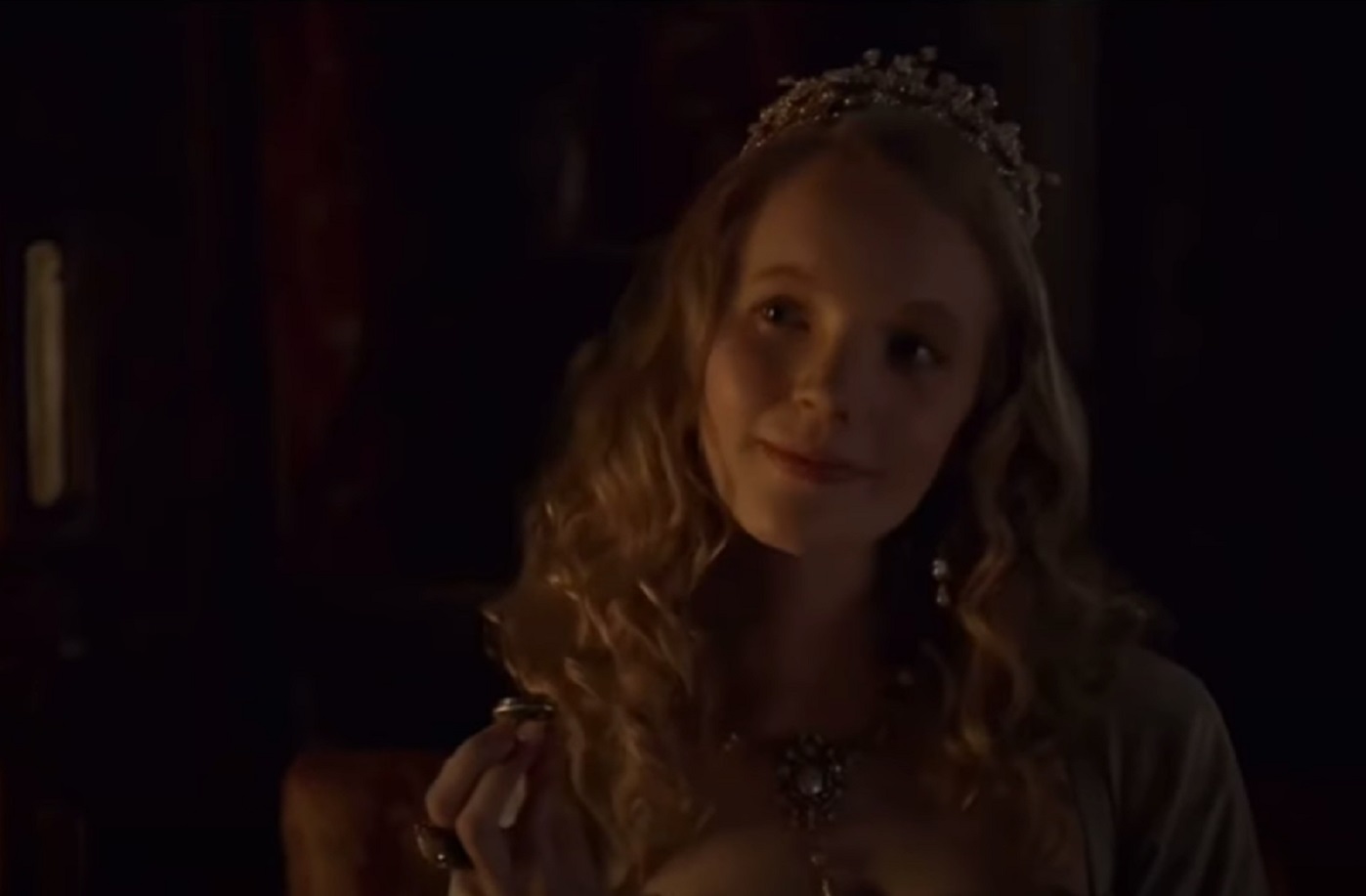 Showtime Networks, The Tudors (2007–2010)
Showtime Networks, The Tudors (2007–2010)
26. Two Times a Lady
If this is true, Catherine was as good as married when she wed King Henry VIII, and had therefore committed treason at the exact moment she became Queen of England. Sadly, the young, flirtatious Catherine might have gotten away with all of this, if it weren't for one fatal error—and, as we'll see, one fateful letter.
 Showtime Networks, The Tudors (2007–2010)
Showtime Networks, The Tudors (2007–2010)
27. Just Do a Partner Tattoo Next Time
Like her famous first cousin Anne Boleyn, Catherine had a taste for French fashion, and Henry treated her to an abundance of new French dresses. These frocks were generally more modern and sexier than the usual English fare, which suited the flirty Catherine just fine. She also had her “No other will but his” motto sewn in gold at the edges of her sleeves.
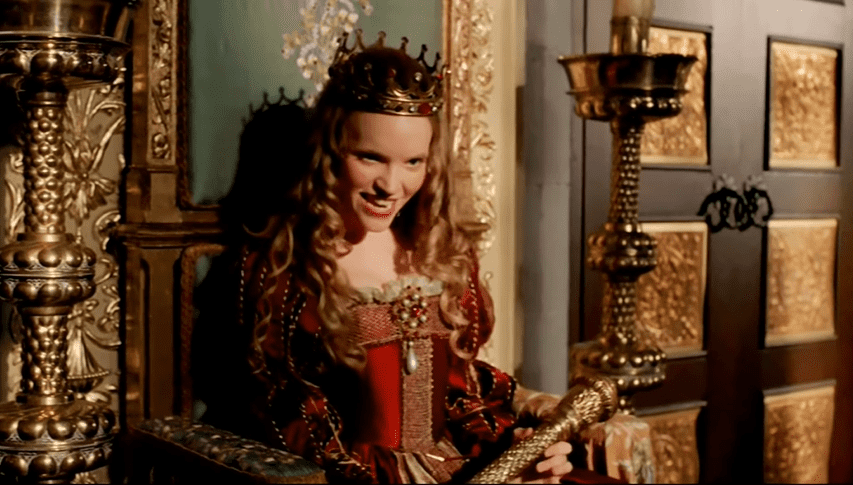 Showtime Networks, The Tudors (2007–2010)
Showtime Networks, The Tudors (2007–2010)
28. Big Man in the City
Catherine was the youngest of Henry VIII’s brides, which might be why she acted so foolishly. Henry was about 30 years older, as well as much bigger and sicker. By 1540, his waist measured at 52 inches. Seeing as so many accounts of Catherine emphasize her youth and petite figure, the queen must have noticed the contrast. And that wasn't the only marital issue.
29. Family Feud
Catherine had an extremely tense relationship with her eldest stepchild, Mary Tudor. After all, Catherine was up to seven years younger than Mary herself. But when Mary showed her disrespect, Catherine doled out a cruel punishment. After another tiff, the enraged Catherine banished two of Mary’s own ladies from court, isolating the princess.
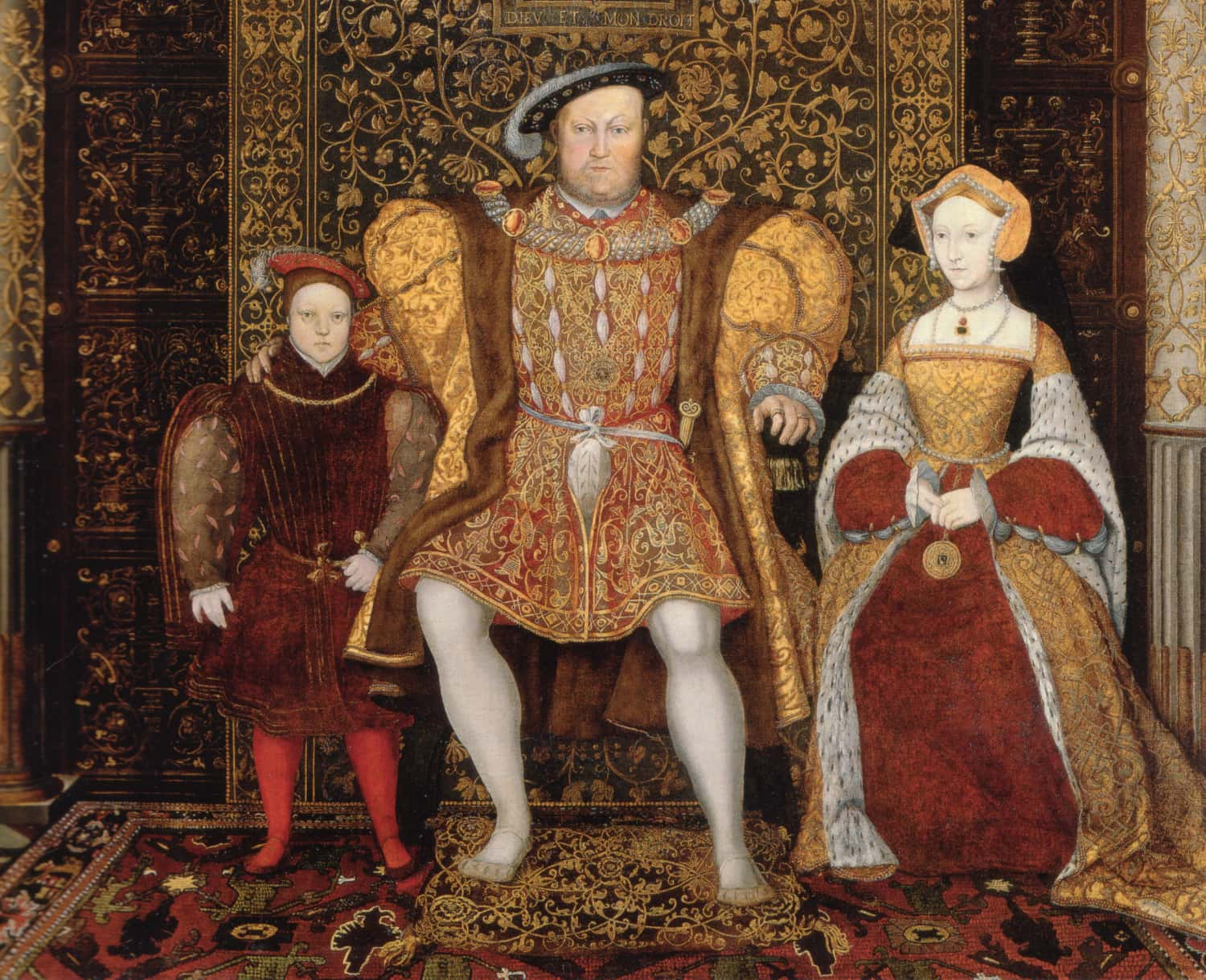 Unknown Author, Wikimedia Commons
Unknown Author, Wikimedia Commons
30. Peace Pomander
Though it must sting when your trophy stepmom pulls rank, Mary knew she had to stay in line if she wanted to stay alive. By May of 1541, the tensions between the two women had cooled down. As a "good little girl" gift, Catherine even gave Mary a gold pomander of jewels and pearls. For the record, I also welcome all olive branches in the form of jewelry.
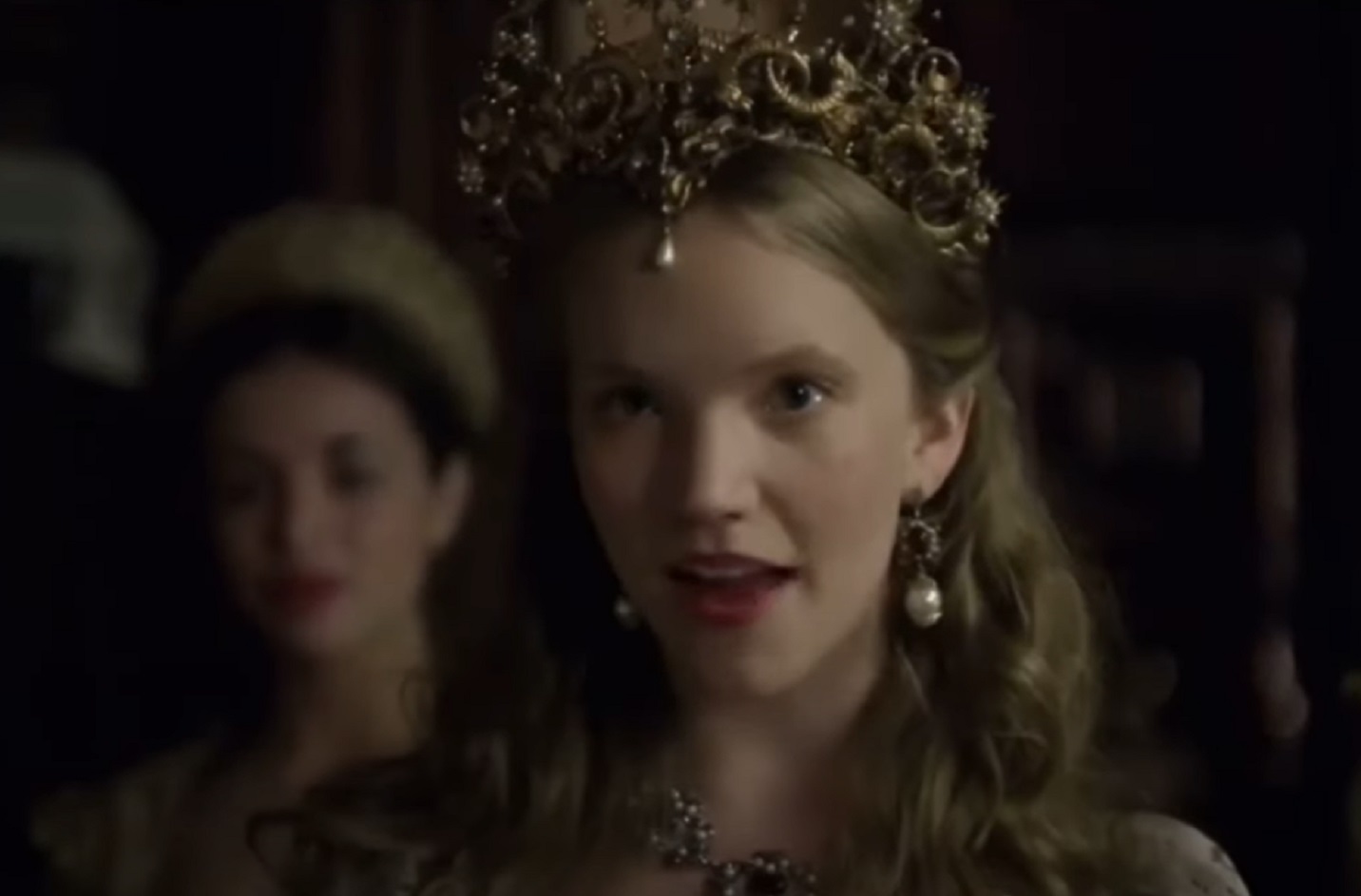 Showtime Networks, The Tudors (2007–2010)
Showtime Networks, The Tudors (2007–2010)
31. Cousin’s Pet
Catherine definitely played favorites, and her most beloved stepchild was Henry’s daughter by Anne Boleyn, the future Elizabeth I. After all, she was closely related to the girl. The mostly-neglected seven-year-old was treated to the “place of honor” at her stepmother's dinner table, and Catherine made a point to invite Elizabeth to court.
 Showtime Networks, The Tudors (2007–2010)
Showtime Networks, The Tudors (2007–2010)
32. What a Haul
In public, Anne of Cleves didn’t seem to resent her old lady-in-waiting Catherine at all. Anne even visited court for one Christmas and gifted the couple some horses. In turn, Catherine gave her ex-boss a ring and two puppies as Christmas gifts, and the two danced together. But as we'll see, under the surface was a much different story.
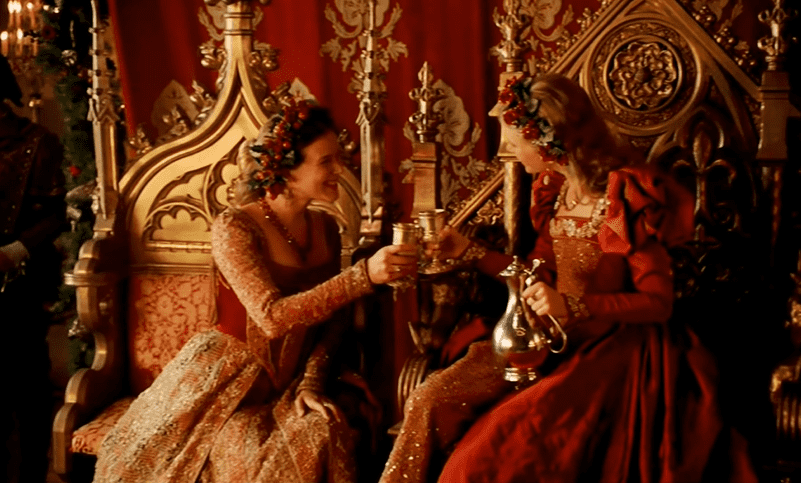 Showtime Networks, The Tudors (2007–2010)
Showtime Networks, The Tudors (2007–2010)
33. Salt and Culpeper
Although she was now Henry's queen, Catherine was still hiding ruinous secrets. While she was still a maid-of-honor to Anne of Cleves, Catherine was also courted by a favorite of the King, Thomas Culpeper. She was even considering marriage until Henry came along. When she became queen, her relationship with Culpeper didn't exactly stop...
 Showtime Networks, The Tudors (2007–2010)
Showtime Networks, The Tudors (2007–2010)
34. Three's Company
The debate still rages about just how much contact Catherine and Thomas had with each other after she became Queen of England, but the answer definitely isn't "none". Without a shadow of a doubt, the emotional aspect of their relationship was still going strong while Catherine shared Henry's bed, but other signs point to even more treasonous behaviour.
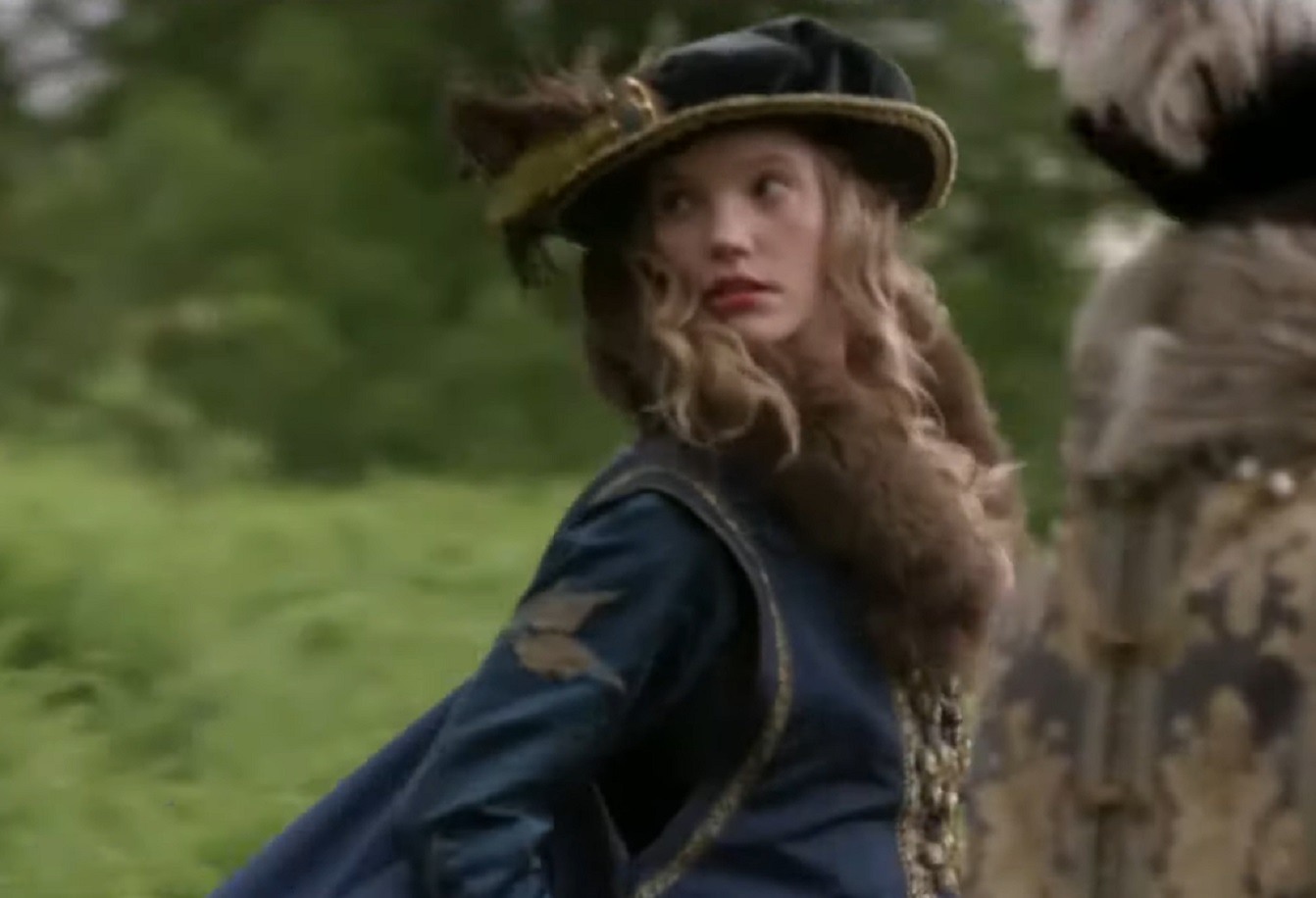 Showtime Networks, The Tudors (2007–2010)
Showtime Networks, The Tudors (2007–2010)
35. Sneaking Around
Culpeper and Queen Catherine frequently set up secret meetings through one of her ladies-in-waiting, Jane Boleyn. During these rendezvous, they would talk, touch, and maybe more. This behavior alone might have been enough to arouse King Henry VIII's jealousy and suspicions, but Catherine had even bigger problems.
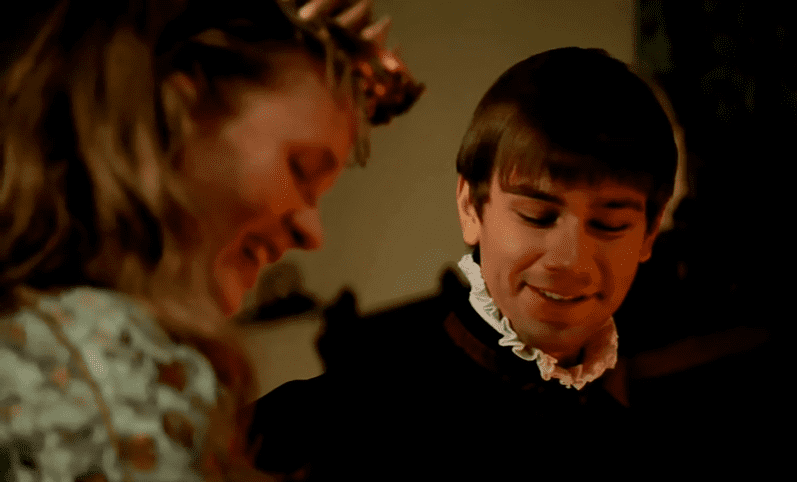 Showtime Networks, The Tudors (2007–2010)
Showtime Networks, The Tudors (2007–2010)
36. A Friend in Need...
Ever since she became queen, all of Catherine's old "friends" from her earlier dorm life came out of the woodwork, and they weren't so friendly anymore. Many of them started contacting her and asking for favors. In return, they would keep mum about all the goings-on they had witnessed during her youth with Francis Dereham and others. But it only took one person to ruin her.
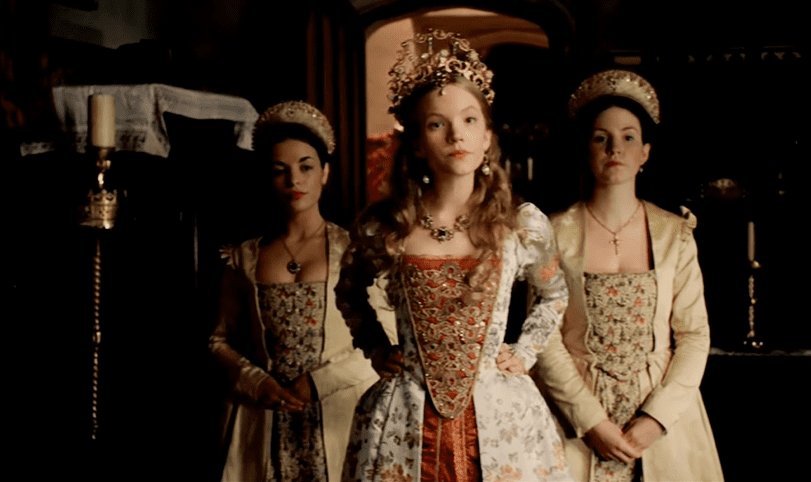 The Tudors, Showtime Networks
The Tudors, Showtime Networks
37. What Happens in the Dorm Doesn’t Stay in the Dorm
In the end, one of Catherine’s old friends was the first to “turn” her in. When John Lascelles asked his sister, Mary, why she wouldn’t petition her old dorm buddy for a job at court, Mary responded that she didn’t approve of Catherine’s “light” ways from their Lambeth days. John reported this to the Archbishop of Canterbury, who then found out about Catherine’s pre-contract of marriage to Francis Dereham.
 Showtime Networks, The Tudors (2007–2010)
Showtime Networks, The Tudors (2007–2010)
38. Dog People
Catherine didn't just spend all her time flirting with boys, she also had a warm-hearted and nurturing facet to her personality. She loved all animals, but she was particularly fond of dogs.
 Showtime Networks, The Tudors (2007–2010)
Showtime Networks, The Tudors (2007–2010)
39. When It Rains, It Pours
The Archbishop's scandalous discovery was bad, but it was about to get even worse. You see, these early investigations against Catherine weren’t for adultery; the pre-contract was probably enough to remove her from the throne, but maybe not execute her for treason. But when Henry's aides looked into it, all Catherine's lies unraveled.
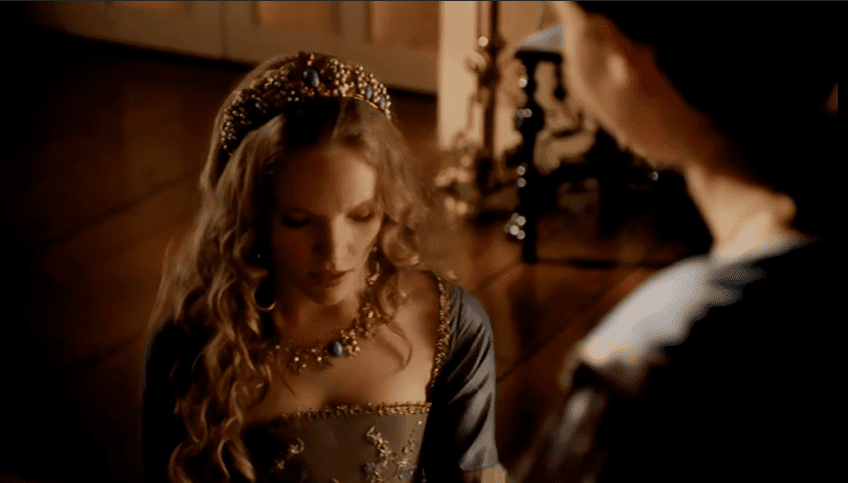 Showtime Networks, The Tudors (2007–2010)
Showtime Networks, The Tudors (2007–2010)
40. Tell Me More
Thomas Cranmer questioned the queen's lady-in-waiting Jane Boleyn in relation to Catherine's conduct, but he got much more than he bargained for. All of a sudden, Boleyn broke down and told the interrogators about Catherine’s secret little meetings with Thomas Culpeper. Not what they were looking for, but it was more than enough.
 Showtime Networks, The Tudors (2007–2010)
Showtime Networks, The Tudors (2007–2010)
41. This Is Why You Clean Your Inbox
The heat was turning way up on Queen Catherine, and investigators got permission to rip apart her chambers. What they found was the final nail in the coffin. They uncovered a letter from Howard to Thomas Culpeper, written in her distinct handwriting. But it wasn't just any old letter—it contents all but buried her.
 Showtime Networks, The Tudors (2007–2010)
Showtime Networks, The Tudors (2007–2010)
42. Eat Your Words
In the fateful letter, Catherine reveals that her heart belongs to Culpeper, not Henry. As she wrote, "When I think again that you shall depart from me again it makes my heart die to think what fortune I have that I cannot be always in your company". She signed the letter “Yours as long as life endures". That life would not endure long.
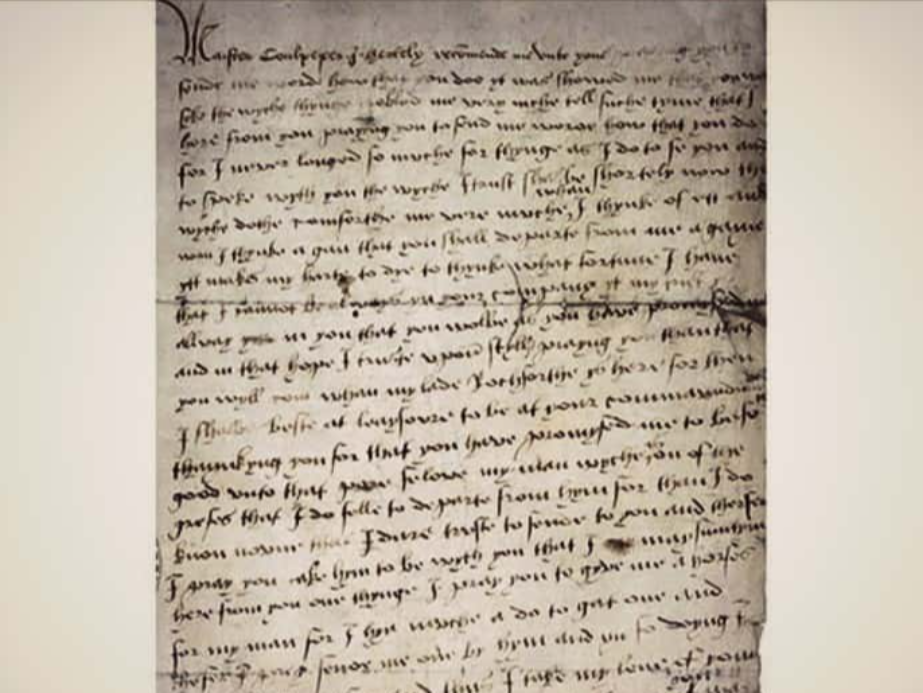 Catherine Howard, Wikimedia Commons
Catherine Howard, Wikimedia Commons
43. Charm School
While Catherine Howard wasn’t the most prosperous or well-educated lady in Henry VIII’s court, you could at least say she was well-mannered. The French ambassador Charles de Marillac once described Catherine as possessing “superlative grace” and a “modest” bearing, which in those times, they really liked in women.
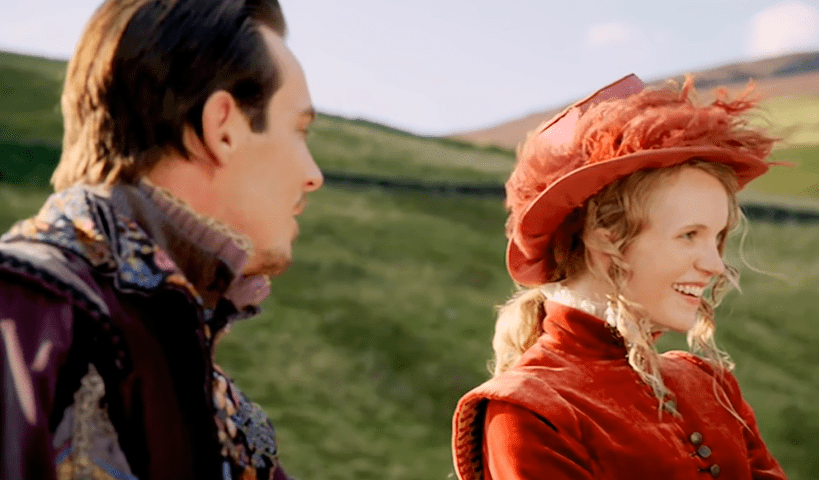 Showtime Networks, The Tudors (2007–2010)
Showtime Networks, The Tudors (2007–2010)
44. That’s What You Get for Trusting People
Initially, Henry was unwilling to believe that his sweet fifth wife could ever be dishonest with him. When he first received a letter of accusations against Catherine, the King insisted it was a forgery and ordered a private investigation only so her name could be cleared. After a few days, however, things took a turn for the worse.
 Showtime Networks, The Tudors (2007–2010)
Showtime Networks, The Tudors (2007–2010)
45. Holier Than Thou
Henry quickly changed his mind about Catherine's innocence, and instead started trying to win the breakup as best he could. When the warrant for Catherine's arrest came down, Henry oh-so-conveniently arranged to be praying in a chapel. That way, he looked extra good and merciful as he signed away his wife's life.
 Showtime Networks, The Tudors (2007–2010)
Showtime Networks, The Tudors (2007–2010)
46. No Way out
When Catherine found out she was being investigated, her response was chilling. She was so distressed that she was practically incoherent, and the Archbishop started become worried she was at risk of harming herself. He actually ordered the servants to remove all sharp objects from her chambers to protect her. After all, Catherine knew what Henry had done to her cousin Anne...
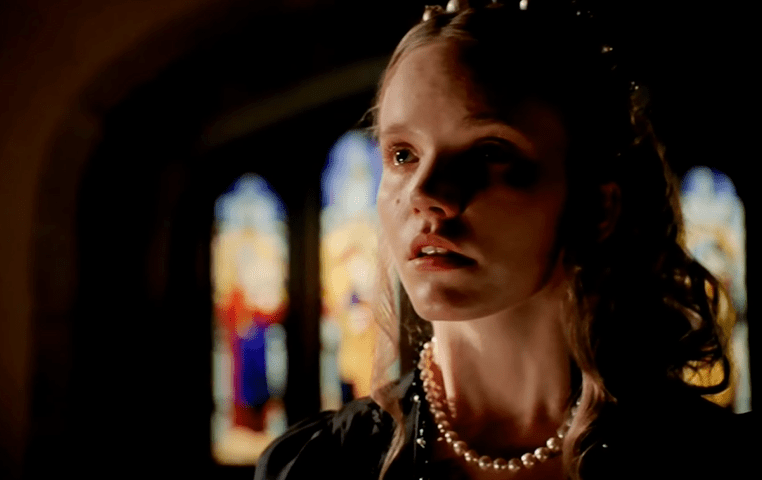 Showtime Networks, The Tudors (2007–2010)
Showtime Networks, The Tudors (2007–2010)
47. Even Monarchs Get the Blues
Look, I don't want you to feel too bad for King Henry VIII in all of this, but he wasn't exactly handling the situation well, either. According to sources close to the king, he sank further into depression, which he dealt with mostly by drinking copious amounts of wine and ordering more women up to his bedchambers. Okay, yeah, I don't feel that bad.
 Showtime Networks, The Tudors (2007–2010)
Showtime Networks, The Tudors (2007–2010)
48. Hail Mary Pass
According to one story, Queen Catherine's arrest couldn't have gone more horrifically. Apparently, she briefly escaped her captivity and ran to where King Henry was hearing mass. Before she could make it to the door and beg for her life, the young Queen was dragged back to her apartments, kicking and screaming all the way.
49. Queen to the Tomb
Catherine might have saved herself at the end, but that's not how it went down. If she had admitted to a pre-contract with Dereham, Henry could simply banish her from court and crown. But to the end, Catherine insisted that she and Dereham had never had any kind of agreement. In fact, she made a much more shocking allegation.
 Showtime Networks, The Tudors (2007–2010)
Showtime Networks, The Tudors (2007–2010)
50. It Wasn't Me
According to one version of Catherine's confession letter, not only had she and Dereham never made an engagement with each other, the older man had all but forced himself on her during the course of their relations. As Catherine puts it in her own writing, “Francis Dereham by many persuasions procured me to his vicious purpose".
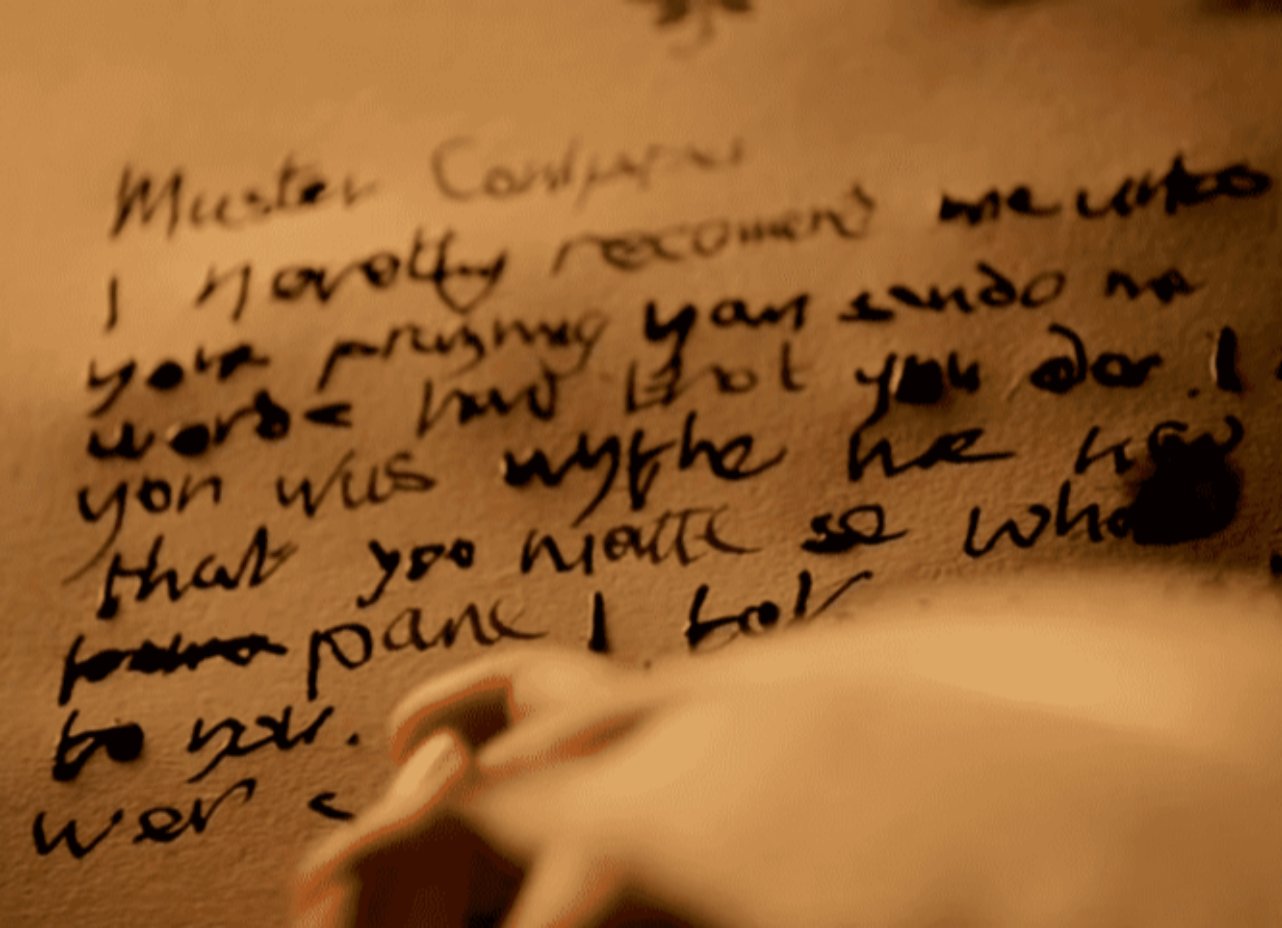 Showtime Networks, The Tudors (2007–2010)
Showtime Networks, The Tudors (2007–2010)
51. Queen No More
Furious that Catherine hadn't really loved him for him, Henry VIII stripped Howard of her queenship on November 23, 1541. She spent the rest of the winter under supervision at a former convent far away from the King. As a result, Christmas celebrations were canceled that year. Henry was simply too bummed out.
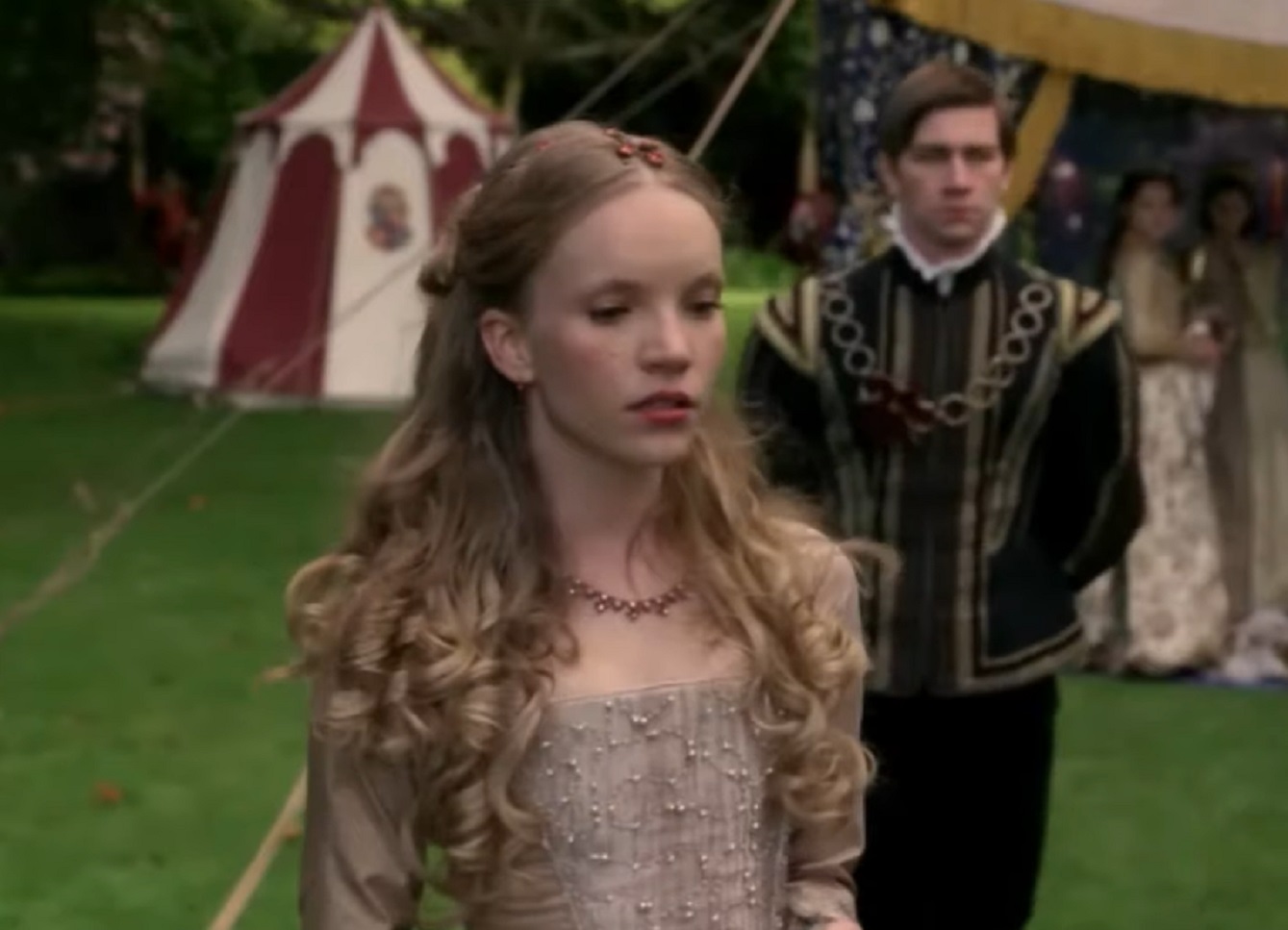 Showtime Networks, The Tudors (2007–2010)
Showtime Networks, The Tudors (2007–2010)
52. Gone Baby Gone
Back in spring 1541, there were rumors that Catherine was pregnant. Sadly, no baby ever materialized—either by mistake or miscarriage, no one is quite sure. Who knows what an heir could have done to save Catherine's life?
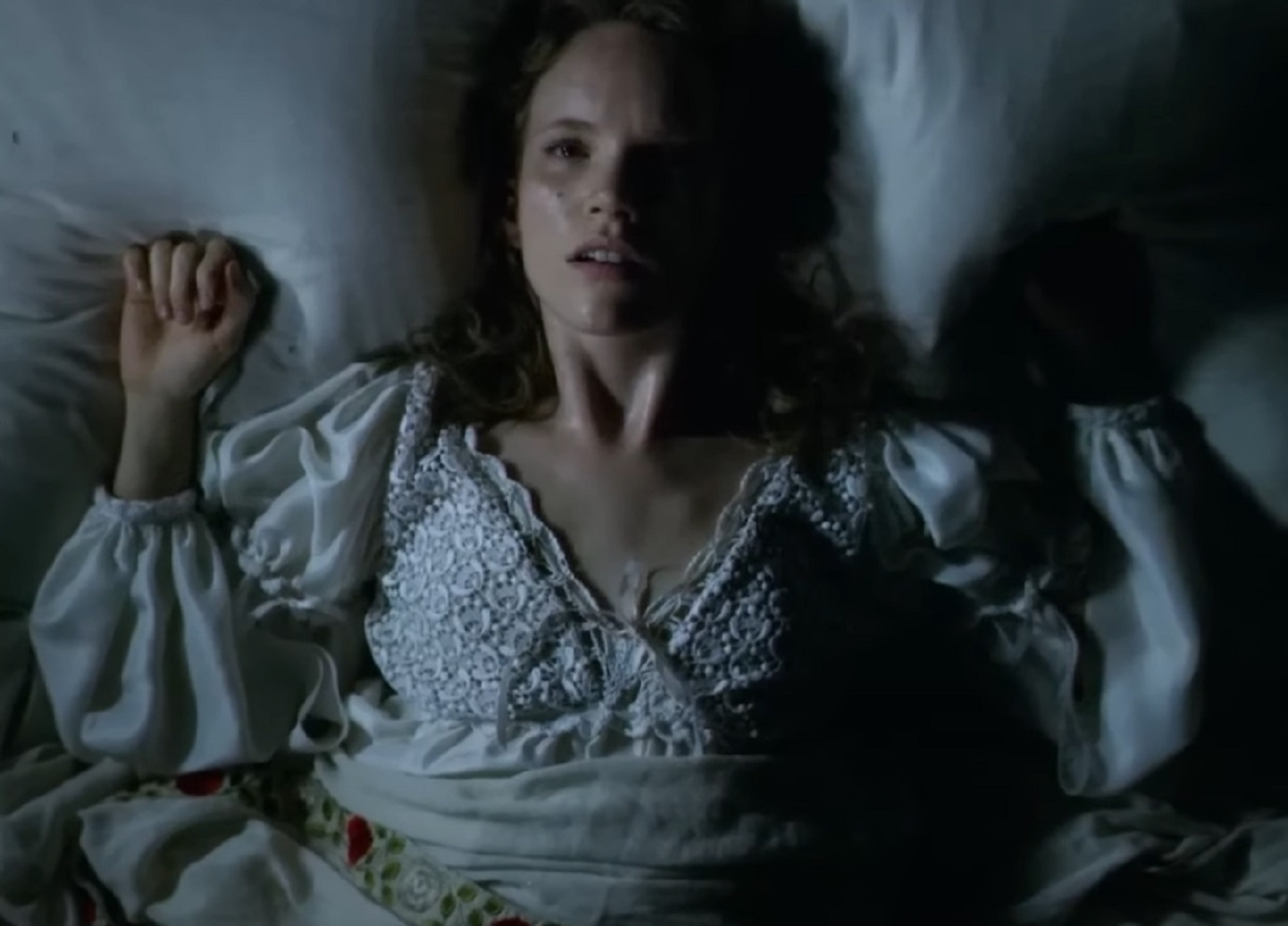 Showtime Networks, The Tudors (2007–2010)
Showtime Networks, The Tudors (2007–2010)
53. Dirty Little Secret
When Henry's men detained and interrogated Thomas Culpeper, he made a disturbing confession. Although he did claim he and Howard refrained from intercourse, he did own that things were very much headed in that direction. As he admitted, "He meant to do ill with the Queen and that likewise the Queen so minded with him".
 Showtime Networks, The Tudors (2007–2010)
Showtime Networks, The Tudors (2007–2010)
54. Mrs. Cleves, I Believe You Are Trying to Seduce Me
When Henry's ex-wife Anne of Cleves heard about Catherine's fall from favor, some say her dark side came out to play. There are hints that Anne saw Catherine's execution as an opportunity, and that she held hope of becoming queen again once Catherine was gone. Her brother even took a private meeting with Henry to try to pressure the king into taking his sister back. Gee, thanks Anne, I thought we were friends.
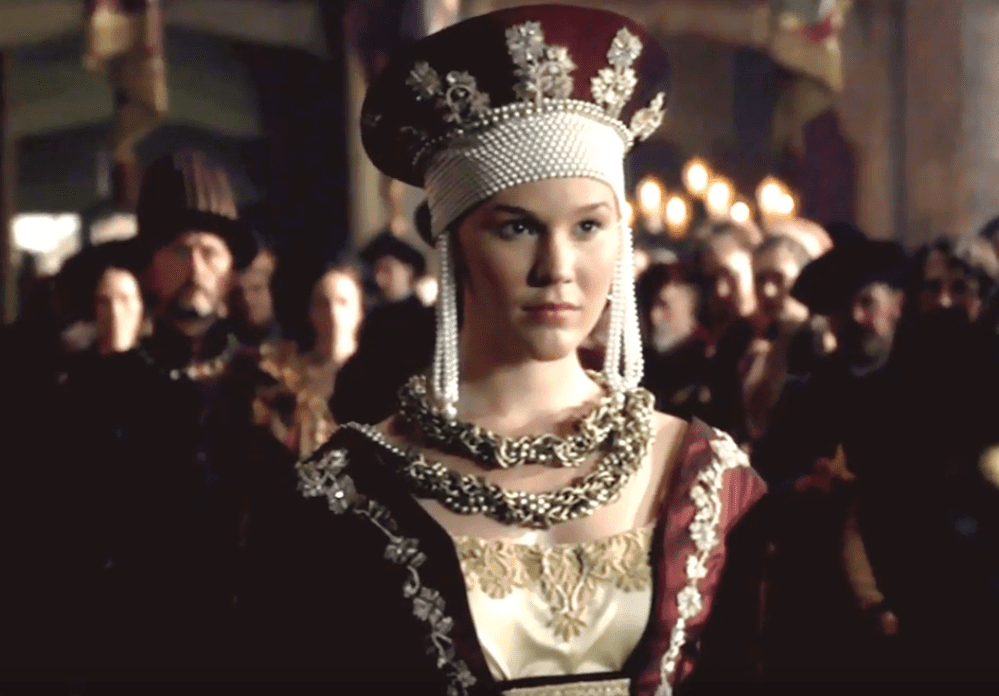 Showtime Networks, The Tudors (2007–2010)
Showtime Networks, The Tudors (2007–2010)
55. The Black Sheep of the Family
To this day, we have no definitive portrait of Catherine Howard, though experts are almost certain a portrait by Hans Holbein the Younger is of the doomed queen. After Catherine's execution, people weren't so keen on keeping her in the king's memory. Even her own family removed their portrait of her from their home gallery. Ouch.
 David Williamson, Wikimedia Commons
David Williamson, Wikimedia Commons
56. Getting Ahead
Henry VIII was incensed at his queen, but he also didn't forget about any of the little guys—namely, Thomas Culpeper and Catherine's ex-"husband," Francis Dereham. Culpeper received a “dignified” execution with a simple beheading on December 10, 1541. But Henry had an even worse fate in store for Francis Dereham.
 Showtime Networks, The Tudors (2007–2010)
Showtime Networks, The Tudors (2007–2010)
57. Not a Way to Go
After hearing the allegations, the king sentenced Dereham to an ignominious end. The poor man, who had done nothing more than love a single lady way back when, got hanged, drawn, and quartered for high treason on the same day as Thomas Culpeper. That is not a good way to go. Around this time, Catherine was preparing for her own gruesome end...
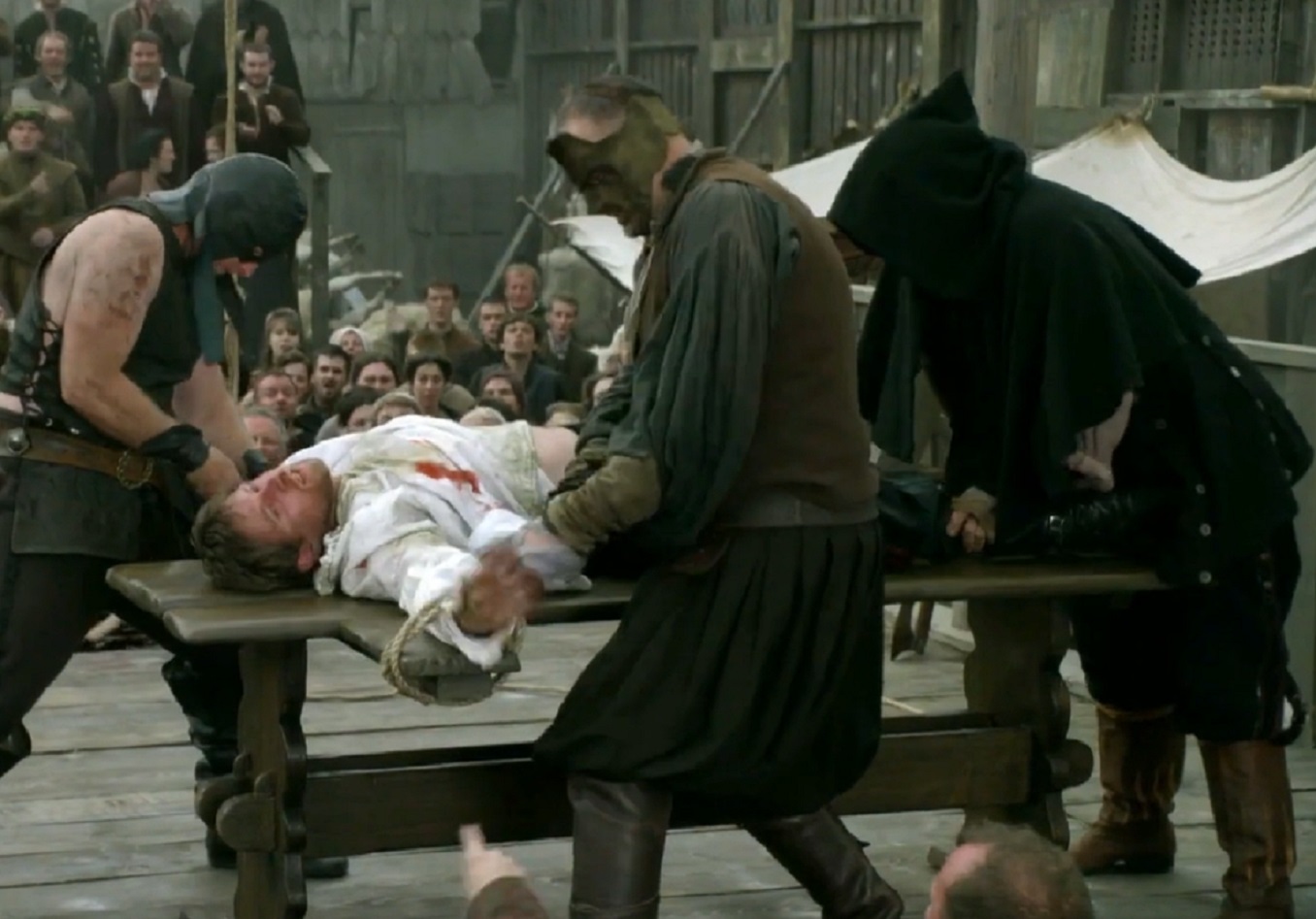 Showtime Networks, The Tudors (2007–2010)
Showtime Networks, The Tudors (2007–2010)
58. Let This Be a Warning
Just days before her execution, Henry's men transferred Catherine via barge to the infamous Tower of London. Reportedly, Catherine was so panicked and wild that the aides had to shove her into the boat. Even more morbidly, their route to the Tower passed directly under London Bridge, giving Catherine a clear view of the heads of both Culpeper and Dereham, which were now proudly displayed on stakes.
 Showtime Networks, The Tudors (2007–2010)
Showtime Networks, The Tudors (2007–2010)
59. Scared Stiff
When Catherine Howard walked to the execution block that fateful day, many people commented on how still and composed she looked. The reality was much sadder. Not only was she pale and breathless, she was actually so terrified she could barely move properly, and had to request help to climb onto the scaffold.
60. Practice Makes Perfect
On the eve of her execution, Catherine asked for a chopping block. She allegedly spent hours laying her head up and down, again and again, making sure she would get it just right on the big day.
 Showtime Networks, The Tudors (2007–2010)
Showtime Networks, The Tudors (2007–2010)
61. My Bloody Valentine
Queen Catherine Howard was beheaded on February 13, 1542, just a day before Valentine’s Day, with a single stroke of the executioner's axe. Ironically, it was Henry VIII himself who would make Valentine’s Day an official English holiday in 1537. Who knew he was decreeing a special occasion to be bummed seven years later?
 Showtime Networks, The Tudors (2007–2010)
Showtime Networks, The Tudors (2007–2010)
62. Two for the Price of One
Catherine may have died with a single axe stroke, but her end was a double feature. Jane Boleyn, the lady-in-waiting who assisted her affair with Thomas Culpeper, was beheaded right after her mistress.
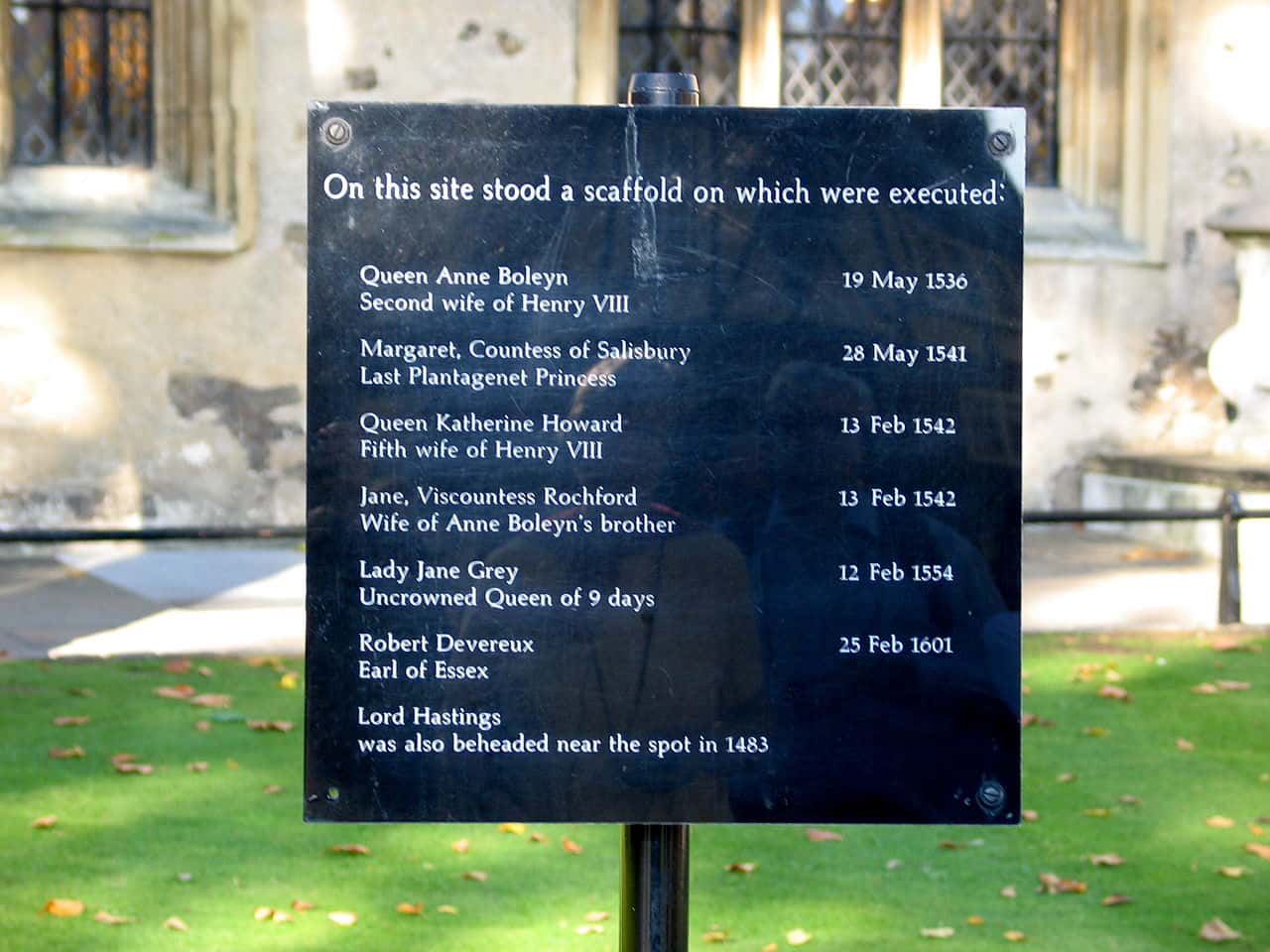 August, CC BY-SA 2.0, Wikimedia Commons
August, CC BY-SA 2.0, Wikimedia Commons
63. God Save the Queen
Catherine was a teen queen to the bitter end. She was about 17 when she came to the throne, and her reign was brutally short. On the day of her execution, she was only around 19 years old. She had ruled for less than two years.
 Showtime Networks, The Tudors (2007–2010)
Showtime Networks, The Tudors (2007–2010)
64. Forget You
Upon her execution, King Henry VIII treated even Catherine's cold body with disdain. He buried her and her maid Jane Boleyn in an unmarked grave in the chapel St. Peter ad Vincula. Henry hadn't even attended her execution.
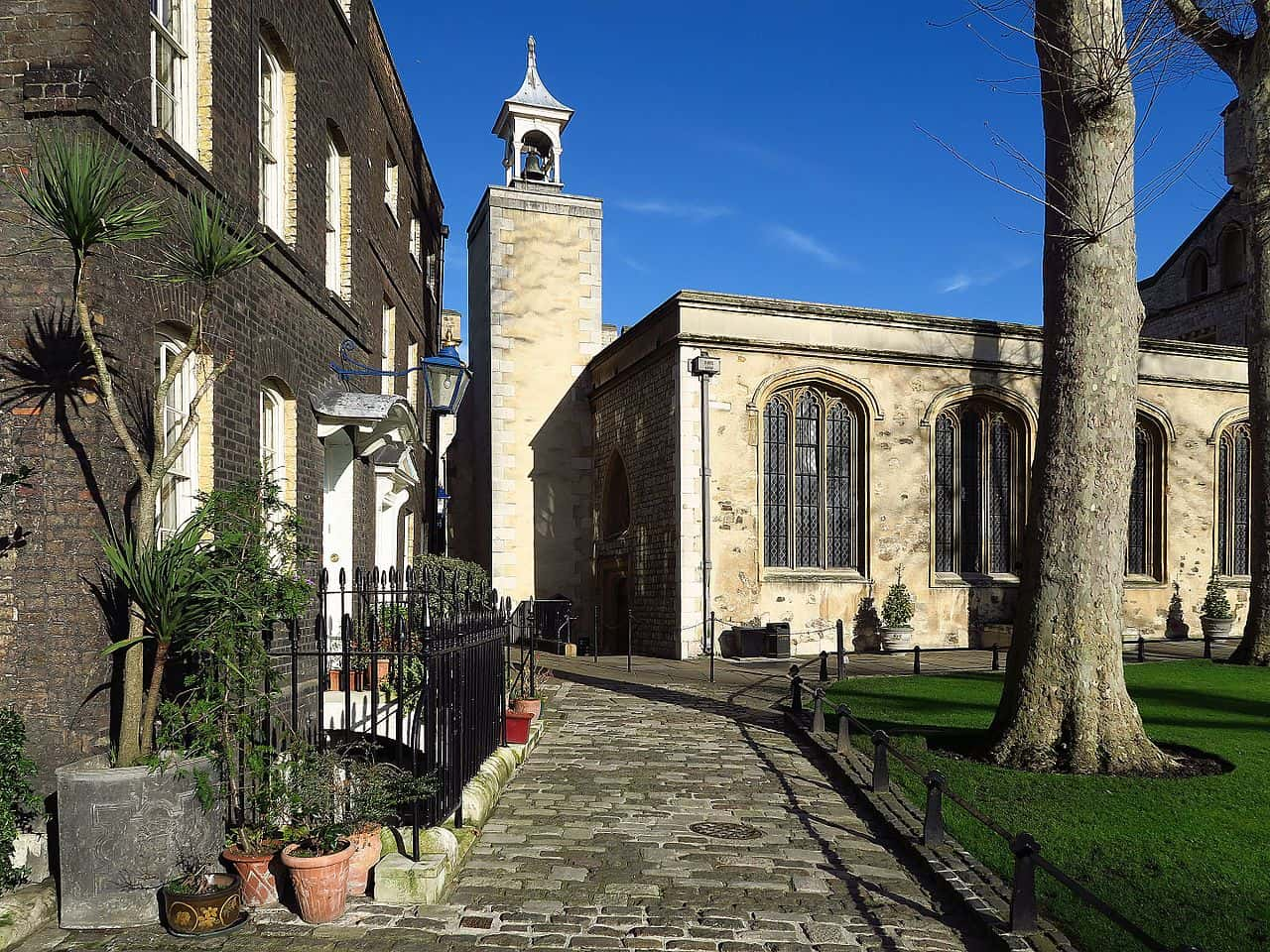 Michael Coppins, Wikimedia Commons
Michael Coppins, Wikimedia Commons
65. A Me Without a Thorn
Henry VIII supposedly declared Catherine his “rose without a thorn". Supposedly, the king struck a coin with such words in Howard's honor. Only he probably didn’t. While Henry did mint a crowned rose coin with these words, he made it some 14 years before he ever met Catherine. It was also dedicated to himself, reading in Latin, “‘Henry is a dazzling rose without a thorn". Self-love is important, I guess.
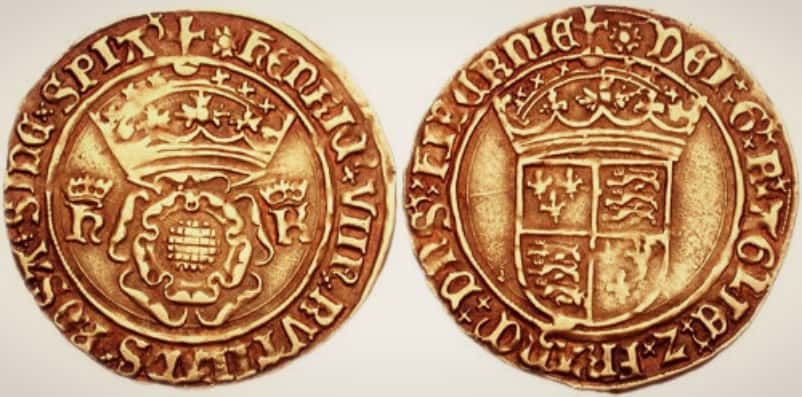 Classical Numismatic Group, CC BY-SA 2.5, Wikimedia Commons
Classical Numismatic Group, CC BY-SA 2.5, Wikimedia Commons
66. Oh, K
Catherine Howard lived in a time before standardized spelling, so sometimes her name is written as “Katheryn". This is how she signs her name in a love letter to Thomas Culpeper, so don’t get confused if you see it again somewhere else.
 Showtime Networks, The Tudors (2007–2010)
Showtime Networks, The Tudors (2007–2010)
67. Looking Out for Number 1
Many of Catherine’s relatives were detained for their suspected knowledge of her past in the bedroom. Some of them handled the accusations with dignity, but her uncle Thomas Howard was an absolute disgrace. He wrote a groveling letter to Henry and laid the blame entirely on his stepmother and Catherine herself. Nice one, Thom.
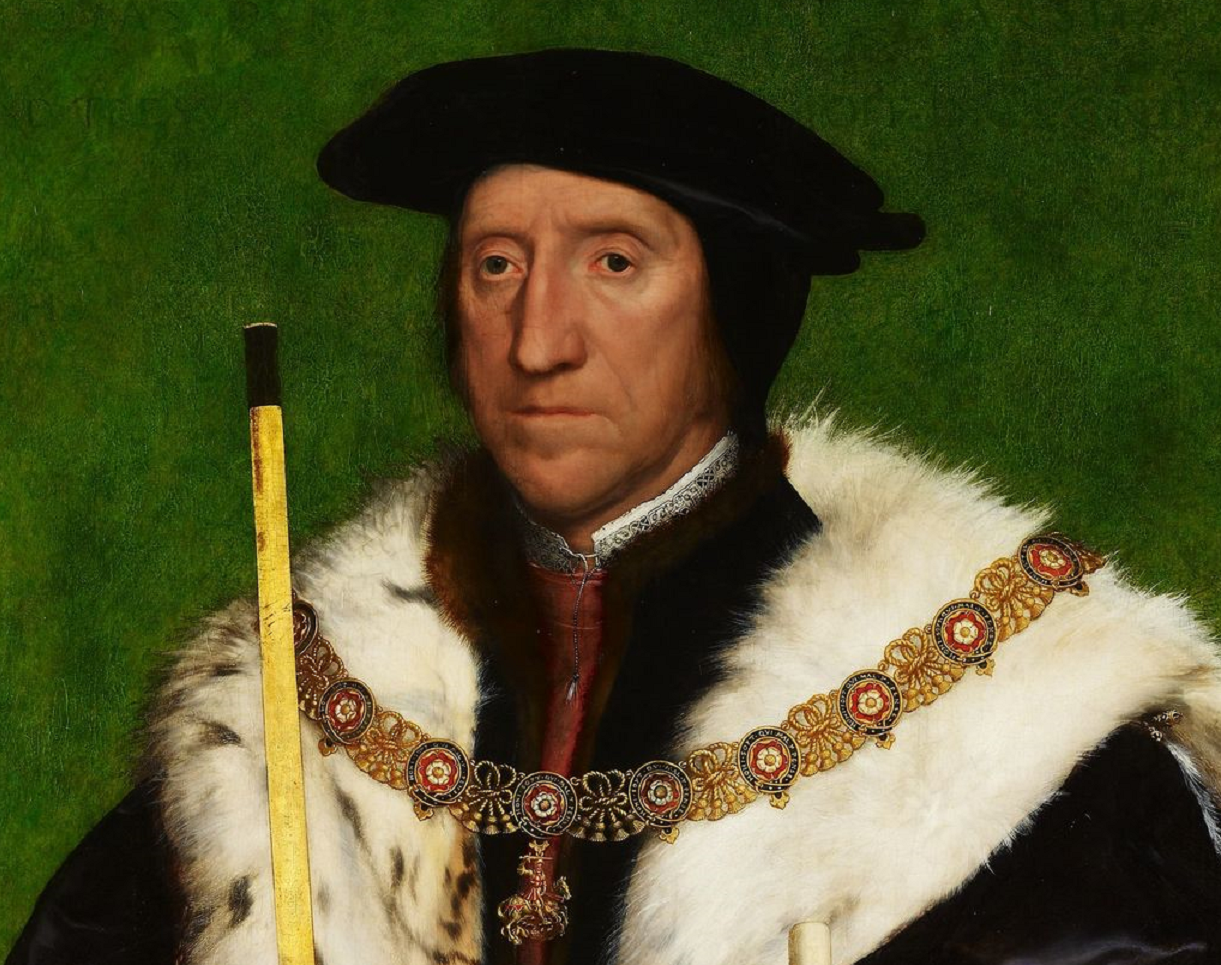 Hans Holbein the Younger, Wikimedia Commons
Hans Holbein the Younger, Wikimedia Commons
68. Don't Call Me Queen
Catherine Howard's "reign" was too short and troubled to even have a coronation. That ceremony would have come if she had ever gotten pregnant with Henry's child, which obviously never happened.
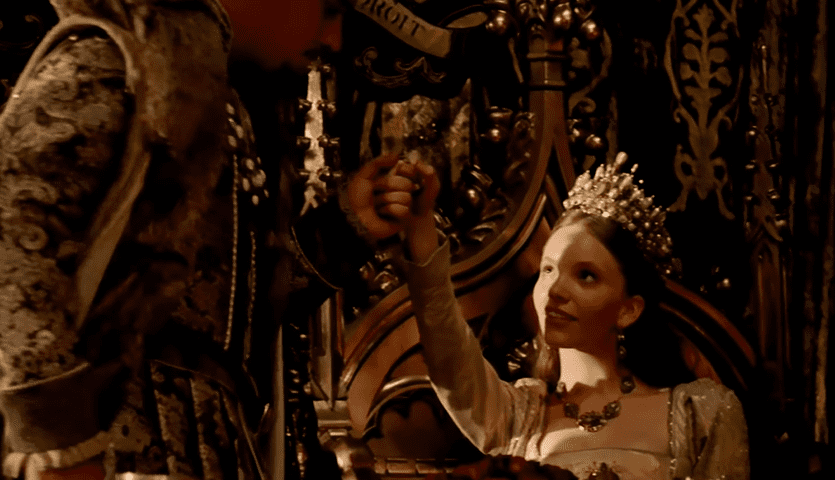 Showtime Networks, The Tudors (2007–2010)
Showtime Networks, The Tudors (2007–2010)
69. I Fought the Law and the Law Won
If you're reading and thinking, “Pre-contracts and heavy flirting with your crush hardly sounds like treason,” you were not alone. So, while Howard was detained, Parliament passed a new law that made it treason for a king’s wife to not disclose her intimate past to the king. It also made it illegal for her to even encourage adultery. This closed that legal loophole and, with it, Catherine’s metaphorical noose.
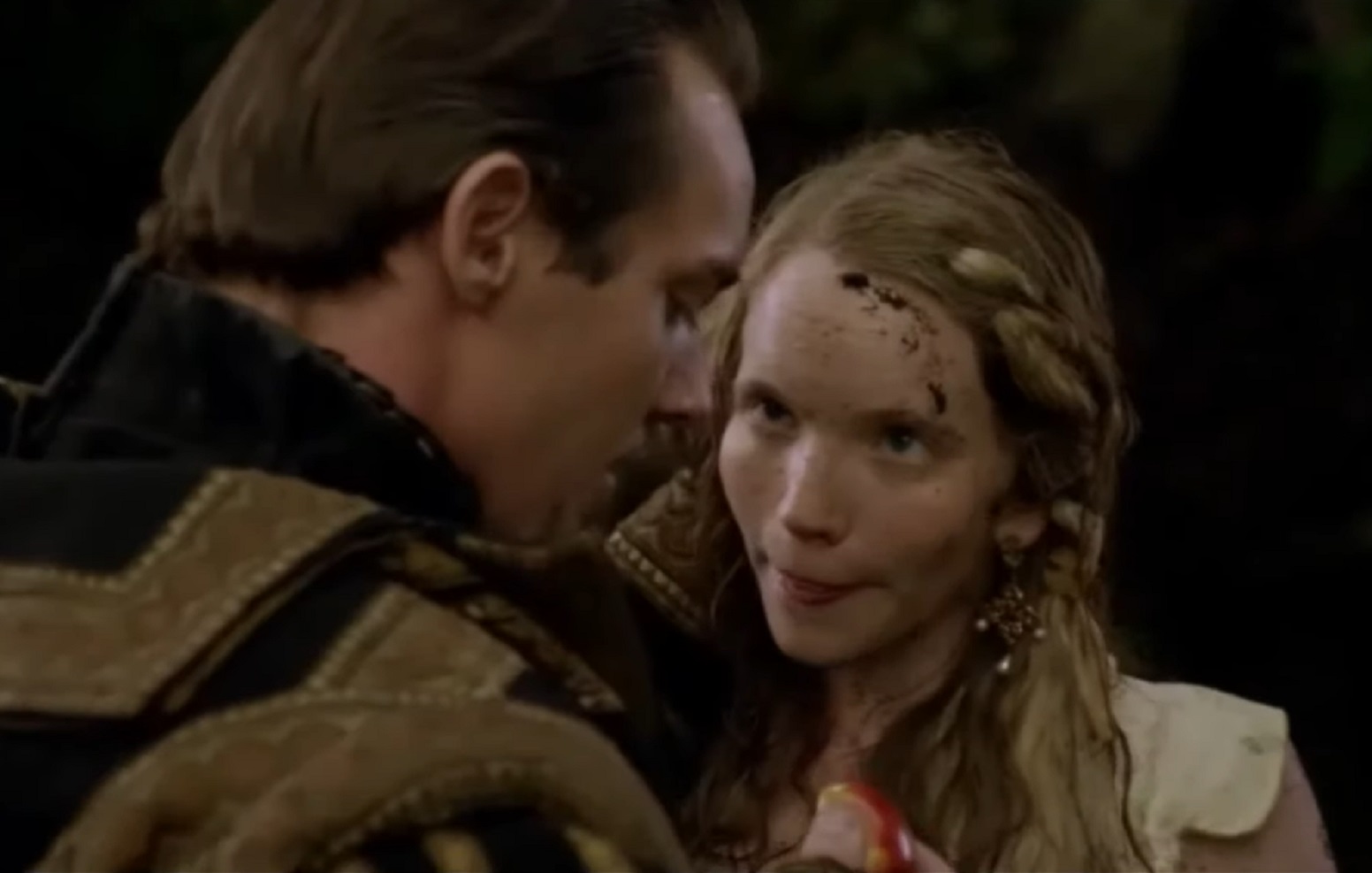 Showtime Networks, The Tudors (2007–2010)
Showtime Networks, The Tudors (2007–2010)
70. Who Needs a Reason?
Howard's execution sent shockwaves throughout Tudor England, particularly for the young Princess Elizabeth. At the news, an eight-year-old Elizabeth allegedly vowed that she would never marry. After all, she'd already seen her mother go the same way. There were many reasons why Elizabeth never wed, but Catherine’s execution sure makes for a good “Rosebud” story, doesn't it?
 National Portrait Gallery, Wikipedia
National Portrait Gallery, Wikipedia
71. Not Just an Airhead
Despite her youth and inexperience as Queen, Catherine was one smart cookie. She was a key part in convincing King Henry to release the poet Sir Thomas Wyatt. This actually wasn't the first time Wyatt had been captured—he was detained as a suspect during Anne Boleyn’s trial—so the fact that Catherine managed to do it was a huge feat, and suggests she possessed some major political potential that was cut off too soon.
 National Portrait Gallery, Wikimedia Commons
National Portrait Gallery, Wikimedia Commons
72. Ghost With the Most
The tale of Catherine Howard's desperate escape and attempt to plead for her life while Henry was at mass is now one of the most famous ghost stories in royal history. If you go to Hampton Court Palace, they say you can catch a glimpse of a screaming specter in white, rushing down the “Haunted Gallery". That would be Catherine's ghost, trying and failing to save herself once more.
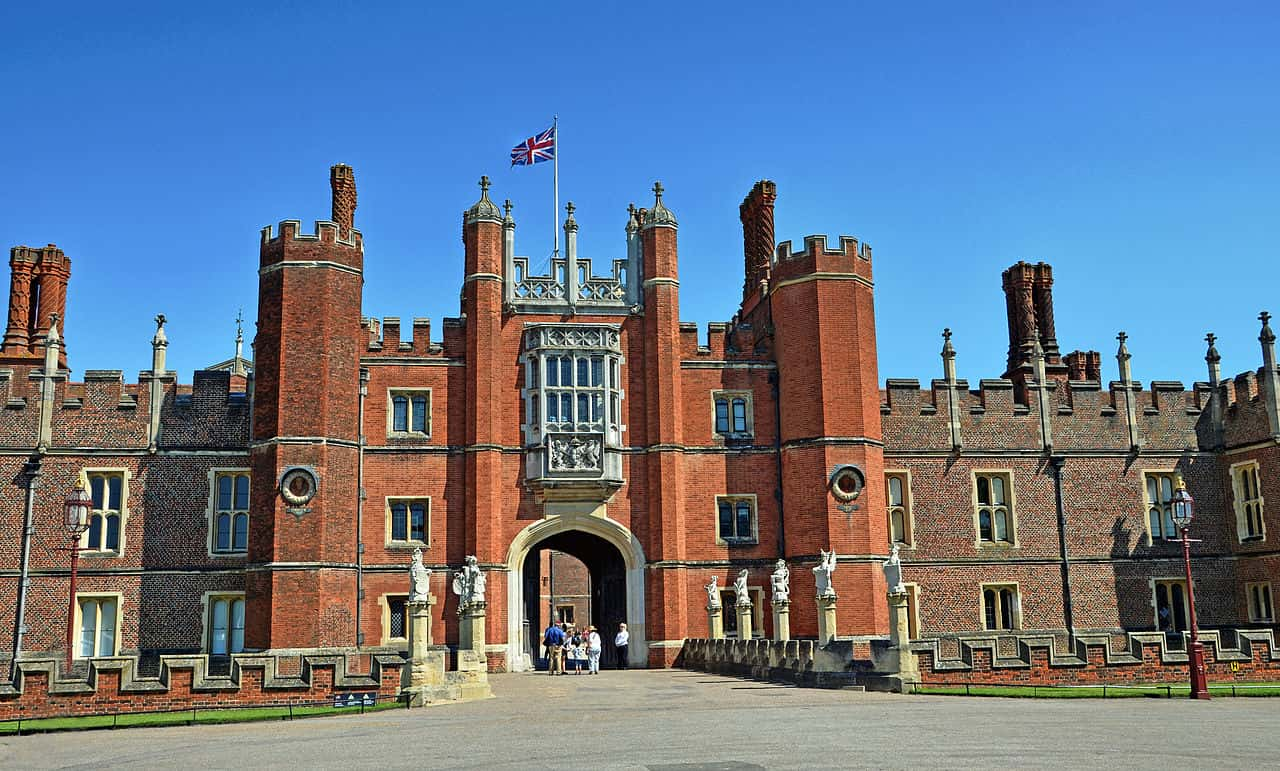 Duncan Harris, UK, CC BY 2.0, Wikimedia Commons
Duncan Harris, UK, CC BY 2.0, Wikimedia Commons
73. Crosswords
When King Henry VIII first learned of Catherine’s emotional affair with his own favorite courtier, Thomas Culpeper, he did not take it lying down. His deranged response is impossible to forget. Henry reportedly flew into a rage and called for a sword, all so he could kill his wife himself right then and there. Obviously, he eventually had the matter outsourced.
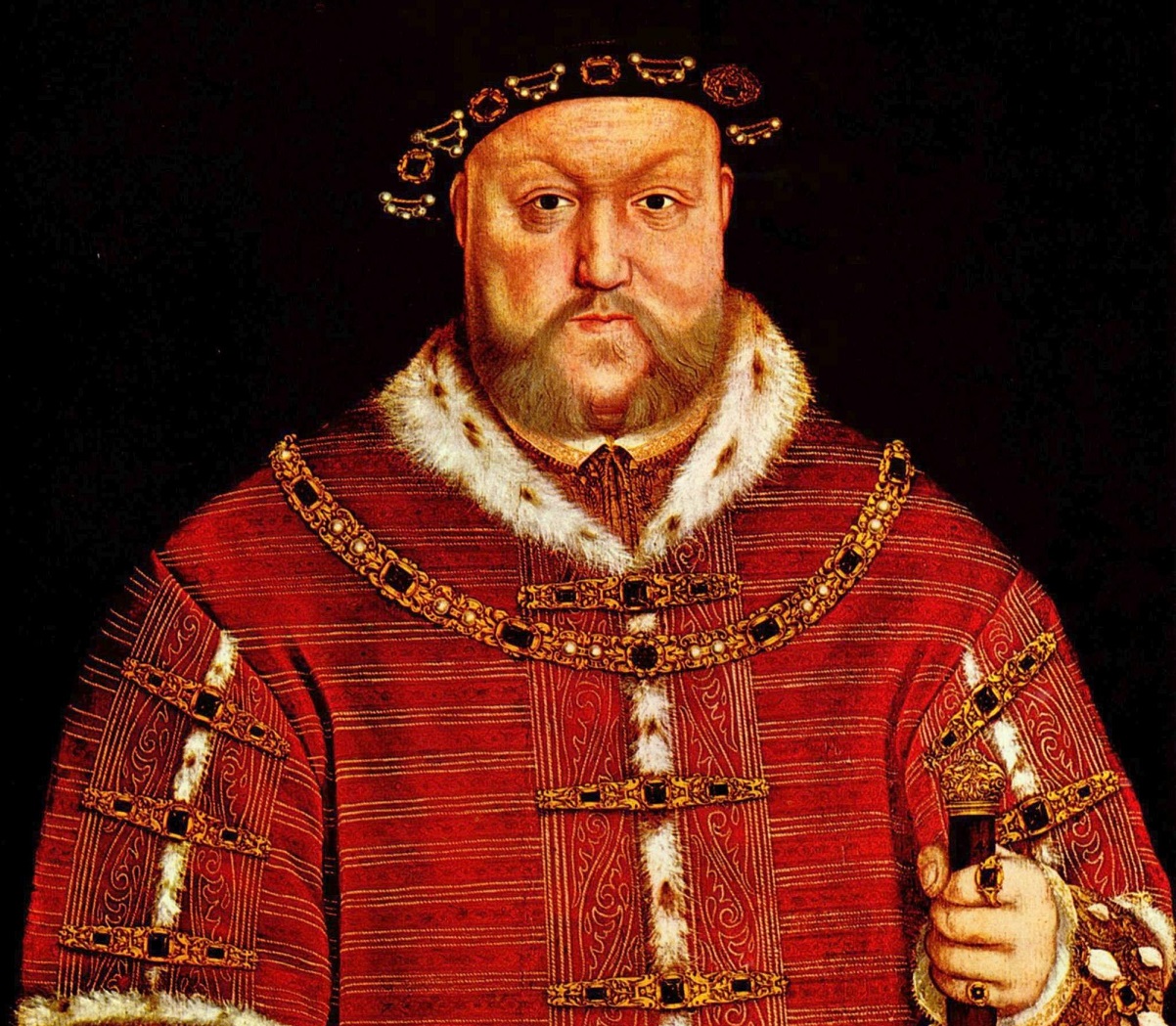 Hans Holbein the Younger, Wikimedia Commons
Hans Holbein the Younger, Wikimedia Commons
74. Wordplay
Folklore says that Catherine's last words as she went to the block were “I die a Queen, but I would rather have died the wife of Culpeper". This is a myth—but her real final words were even more heartbreaking. Howard was repentant, crying that she deserved “to die a thousand deaths” for betraying a king who always treated her so “graciously". But there's actually another story behind these words.
 Showtime Networks, The Tudors (2007–2010)
Showtime Networks, The Tudors (2007–2010)
75. A Dame Til the End
As it turns out, most nobles who got executed tended to apologize, even if they were innocent of their charges. Because their words were sure to get back to the monarch, they wanted to protect the surviving families involved. So in apologizing so profusely, Howard was actually committing a selfless act for her and Culpeper's relatives.
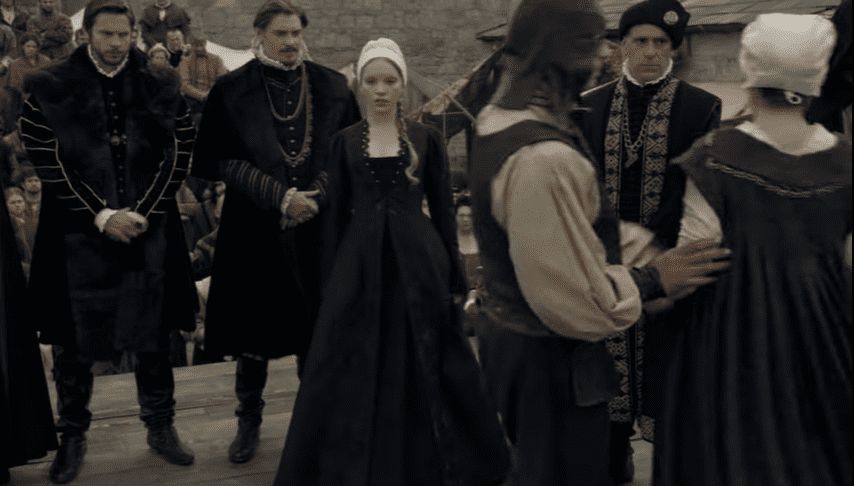 Showtime Networks, The Tudors (2007–2010)
Showtime Networks, The Tudors (2007–2010)
Sources: 1, 2, 3, 4, 5, 6, 7, 8, 9, 10, 11, 12, 13, 14, 15, 16, 17, 18, 19, 20, 21

